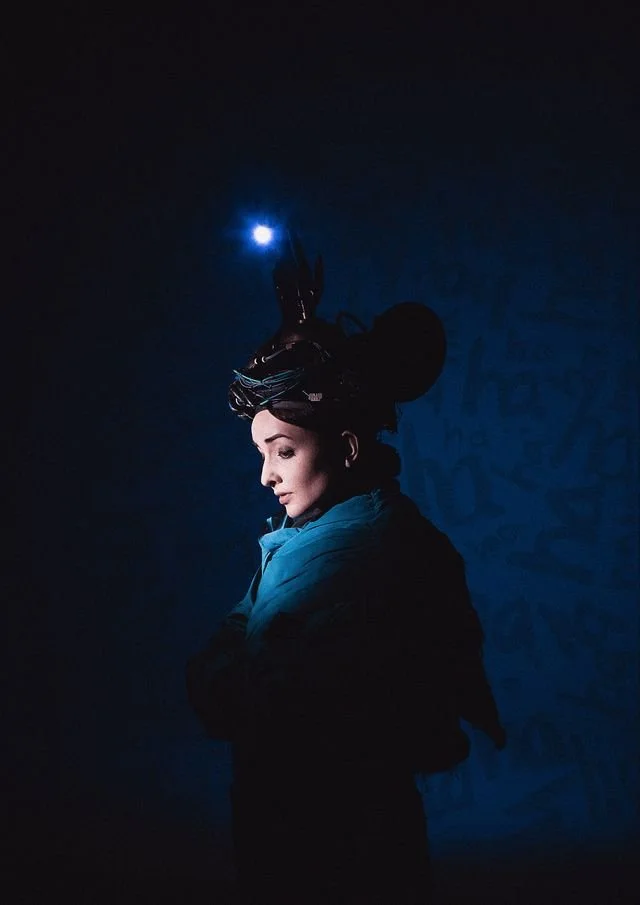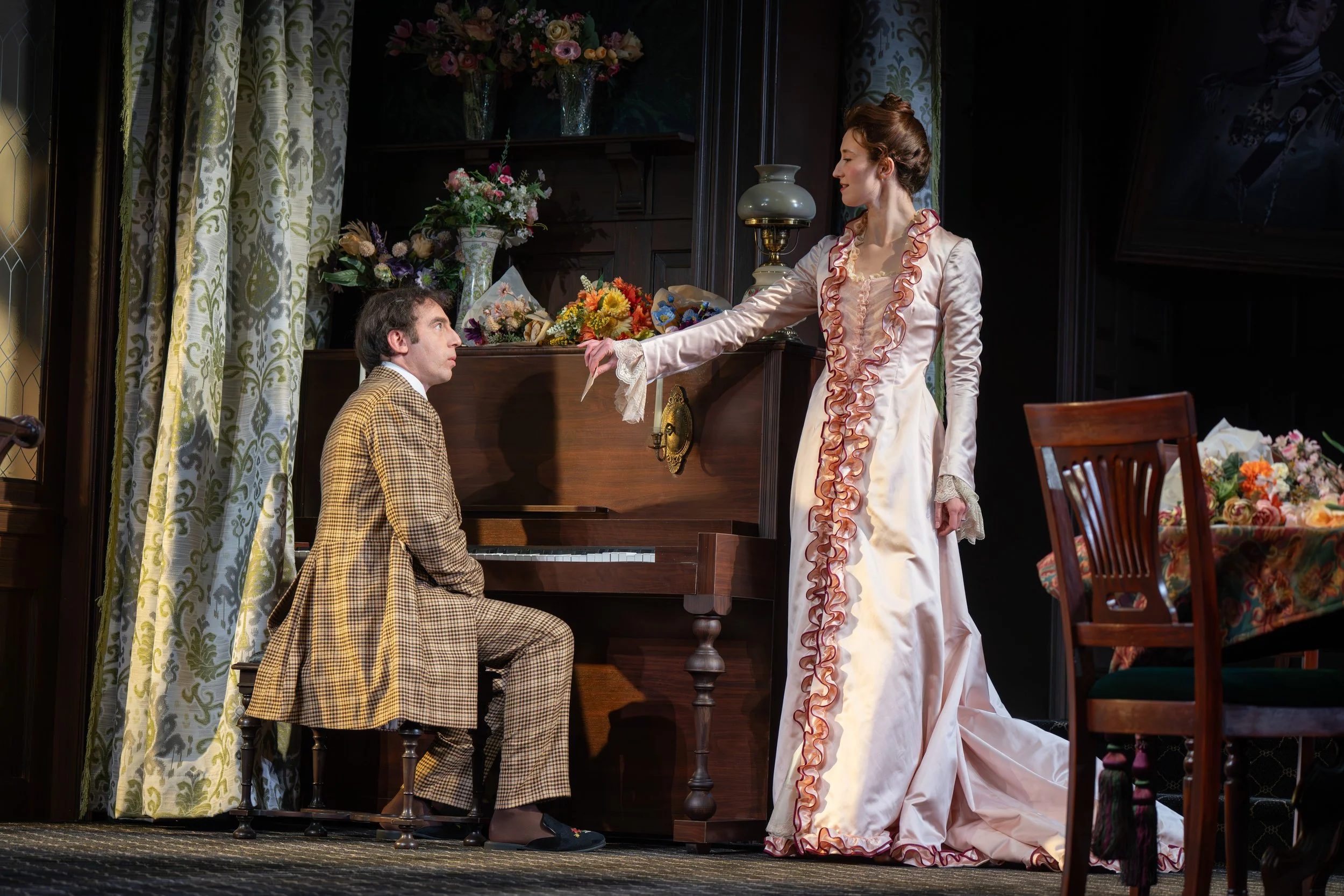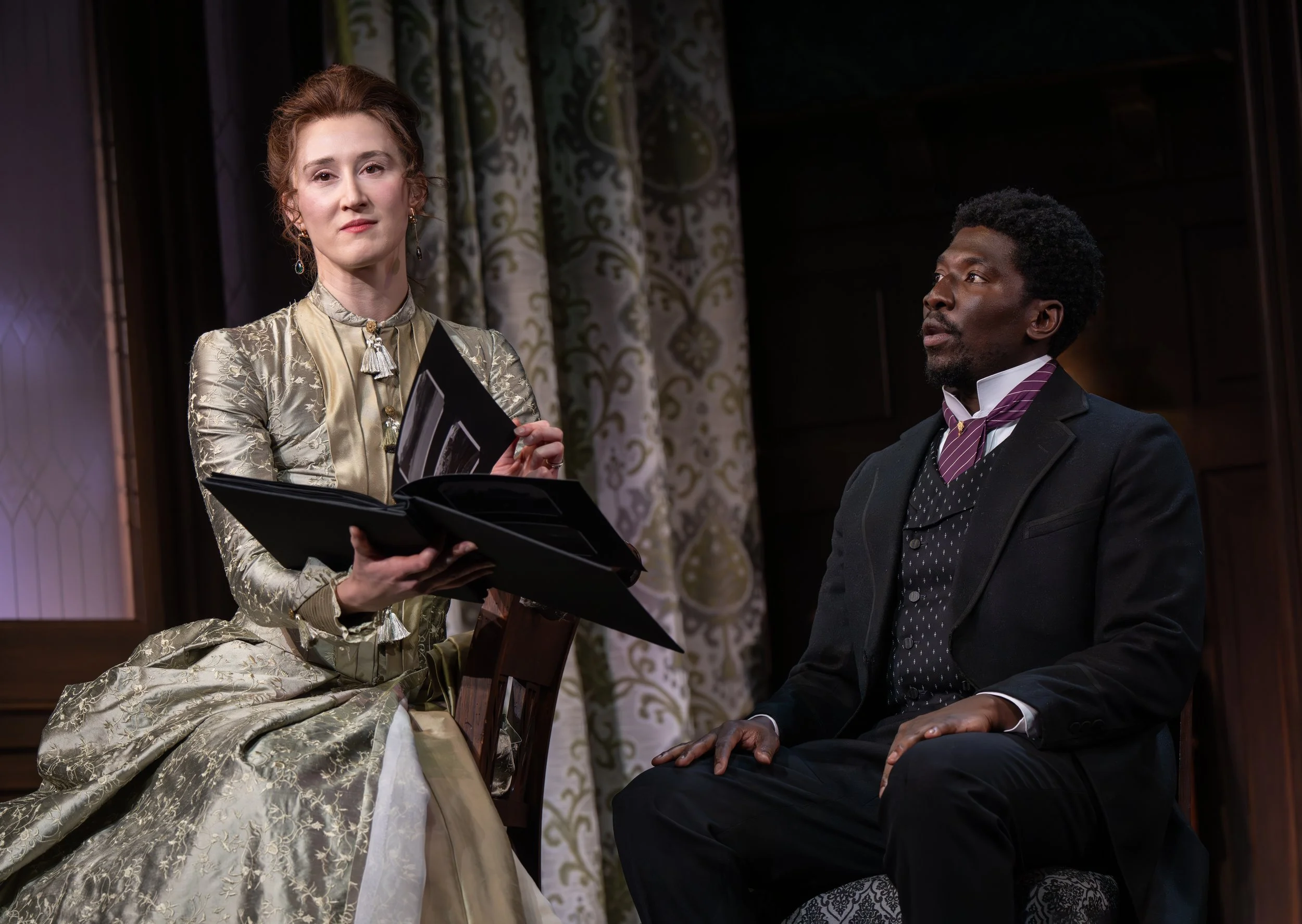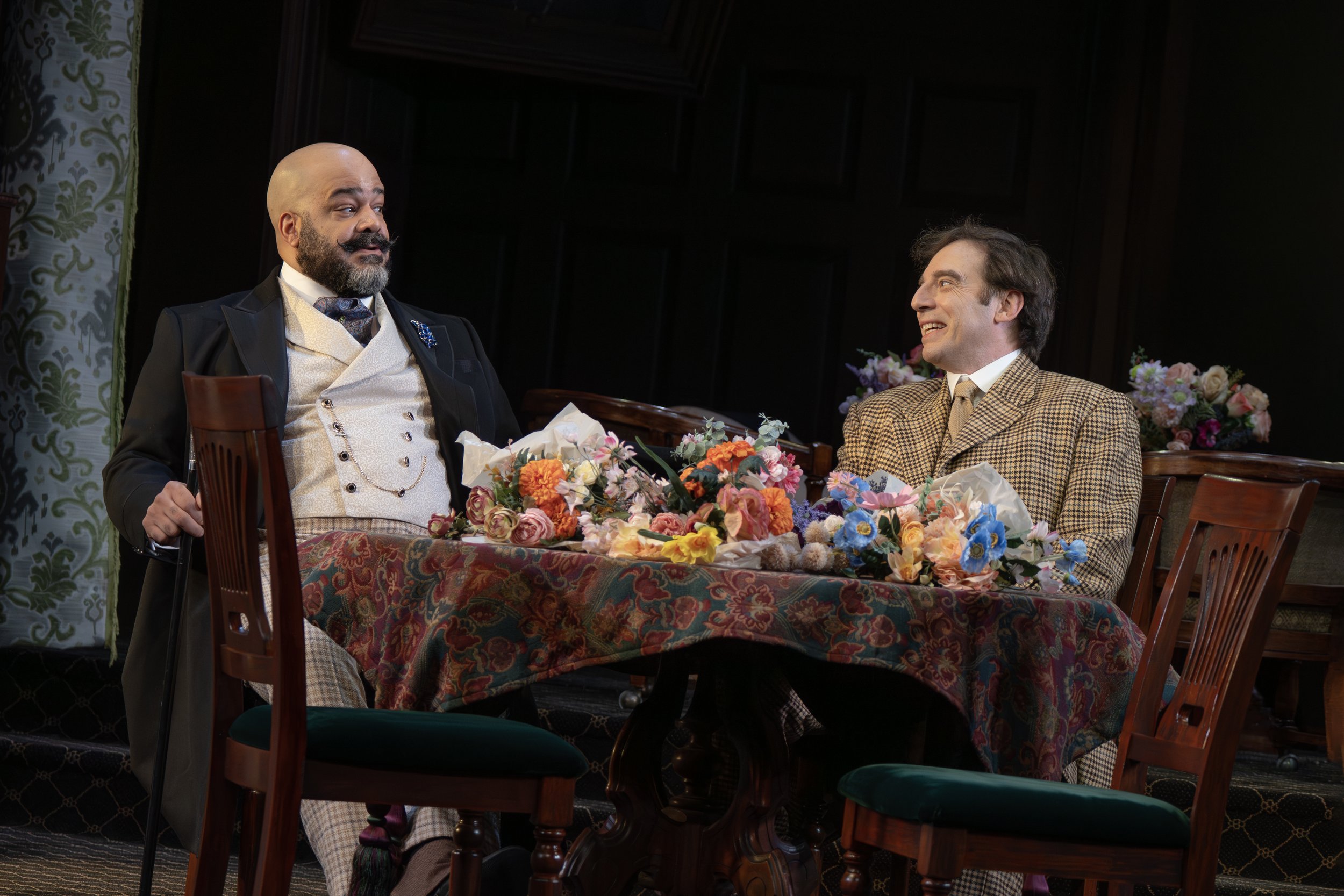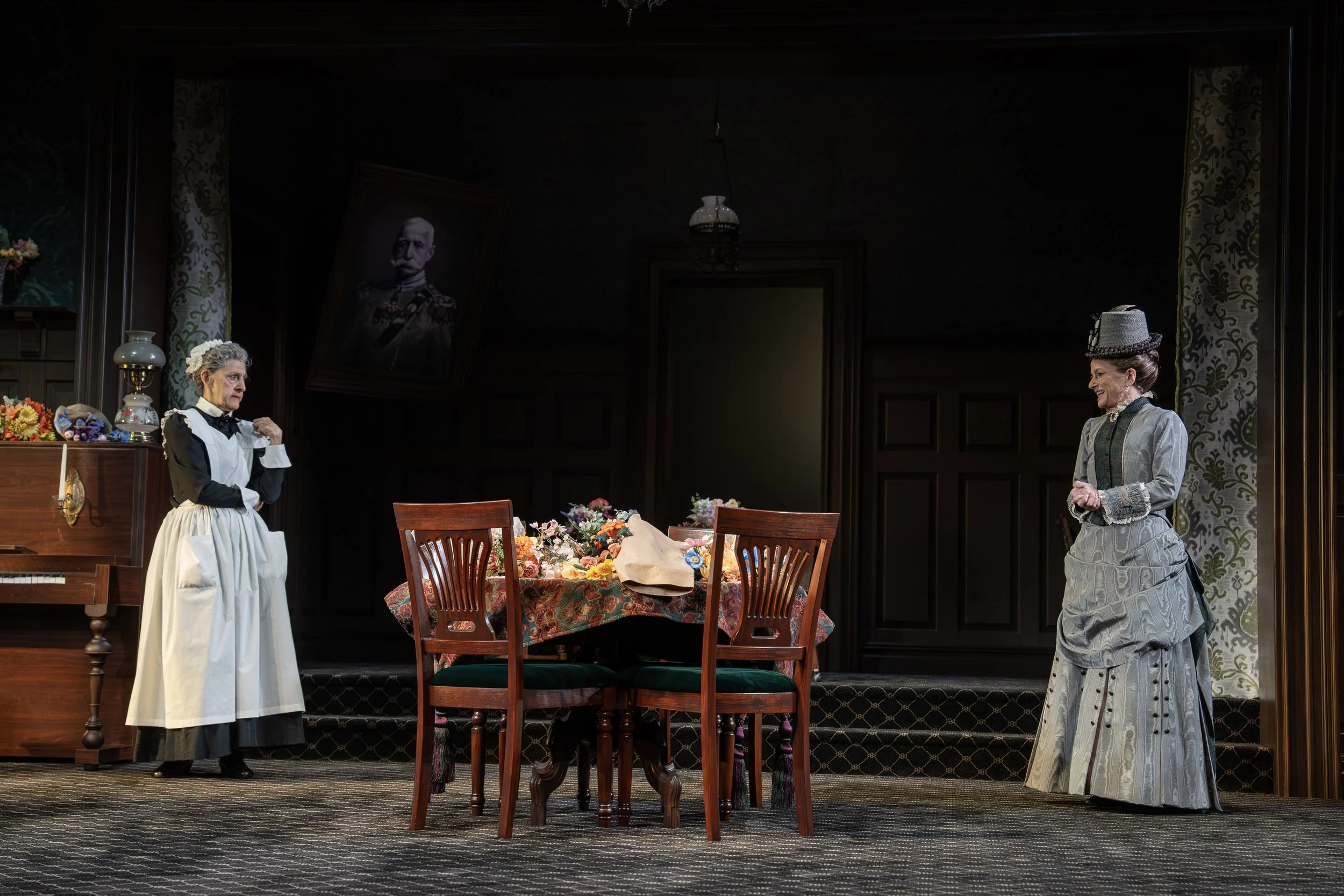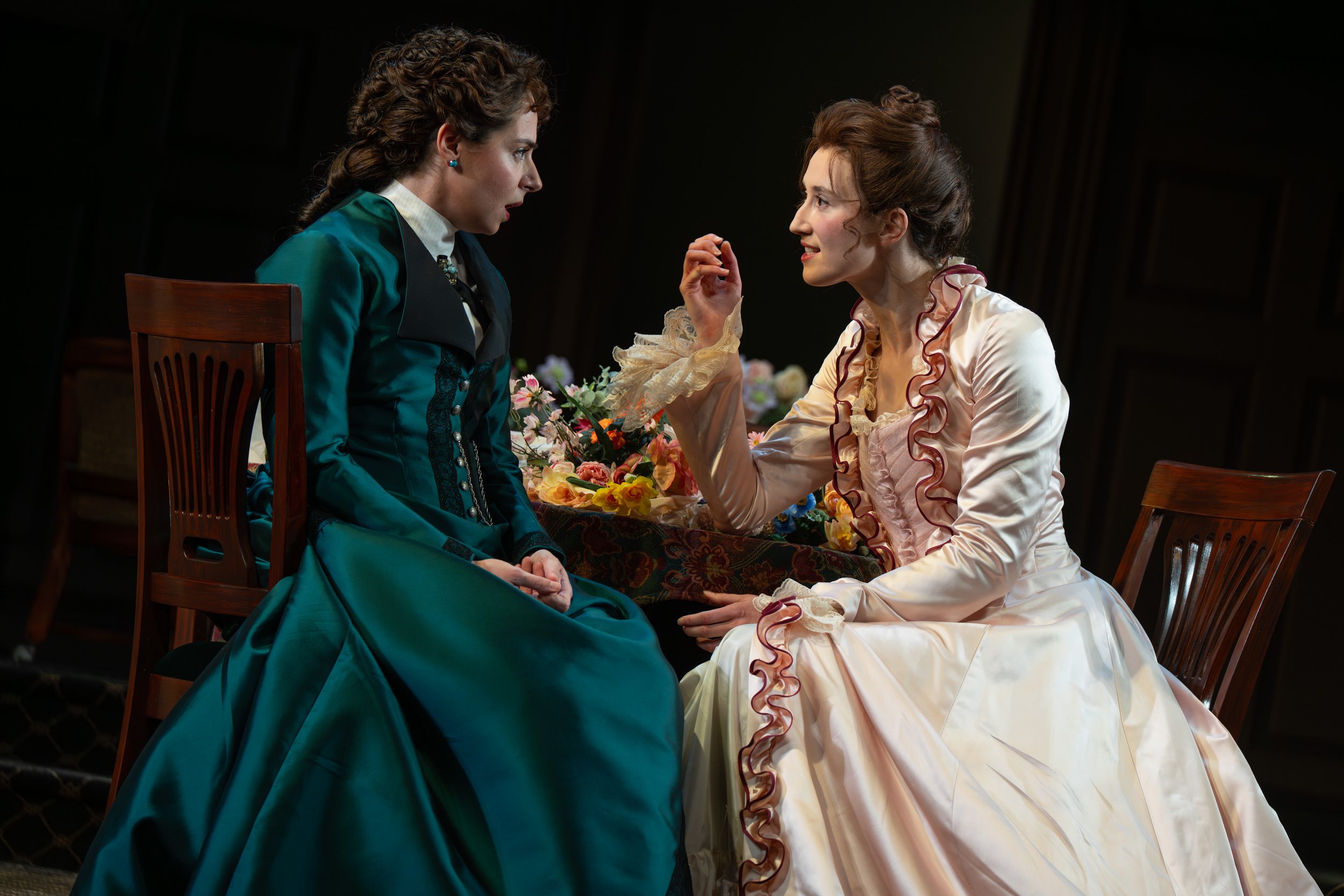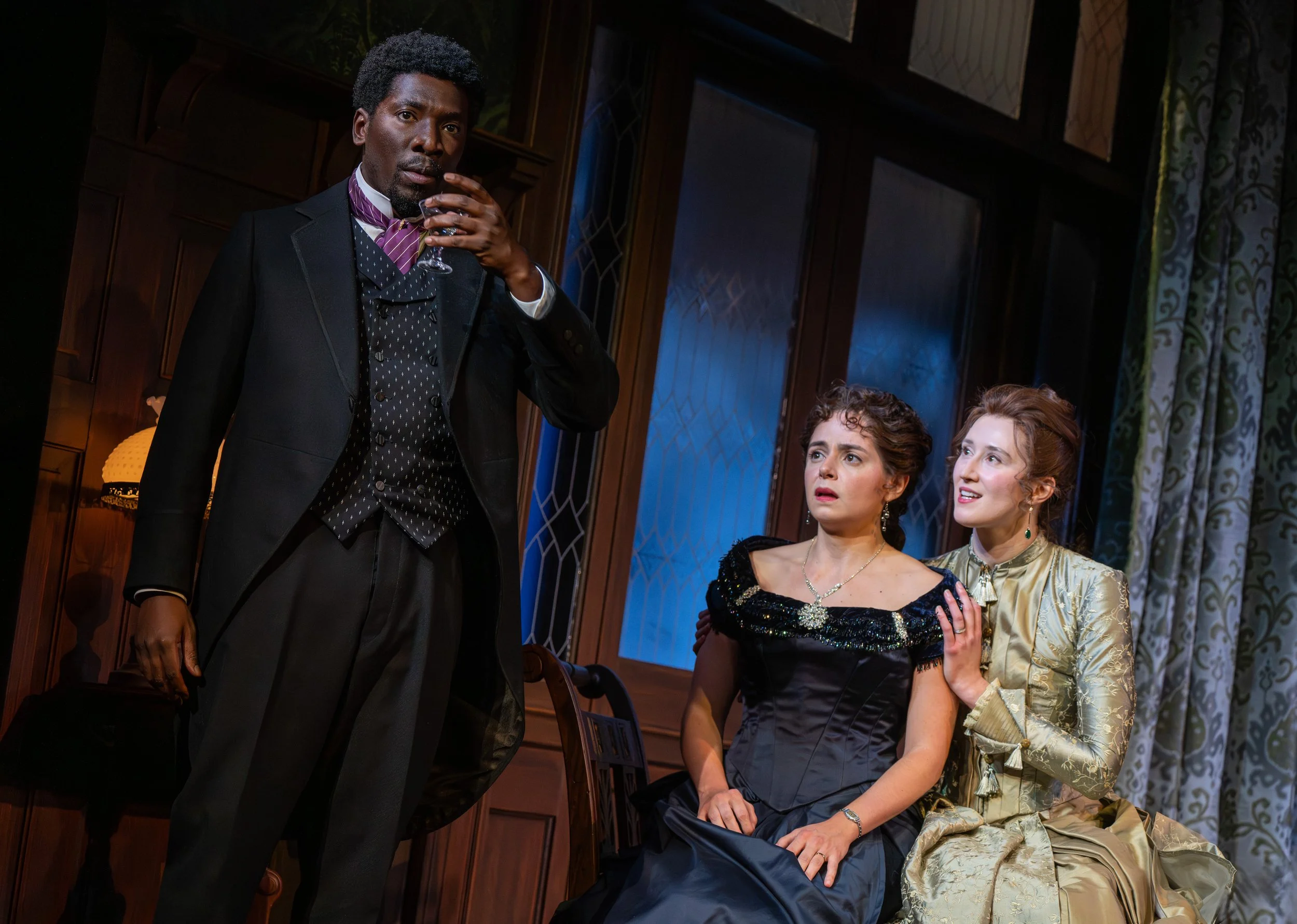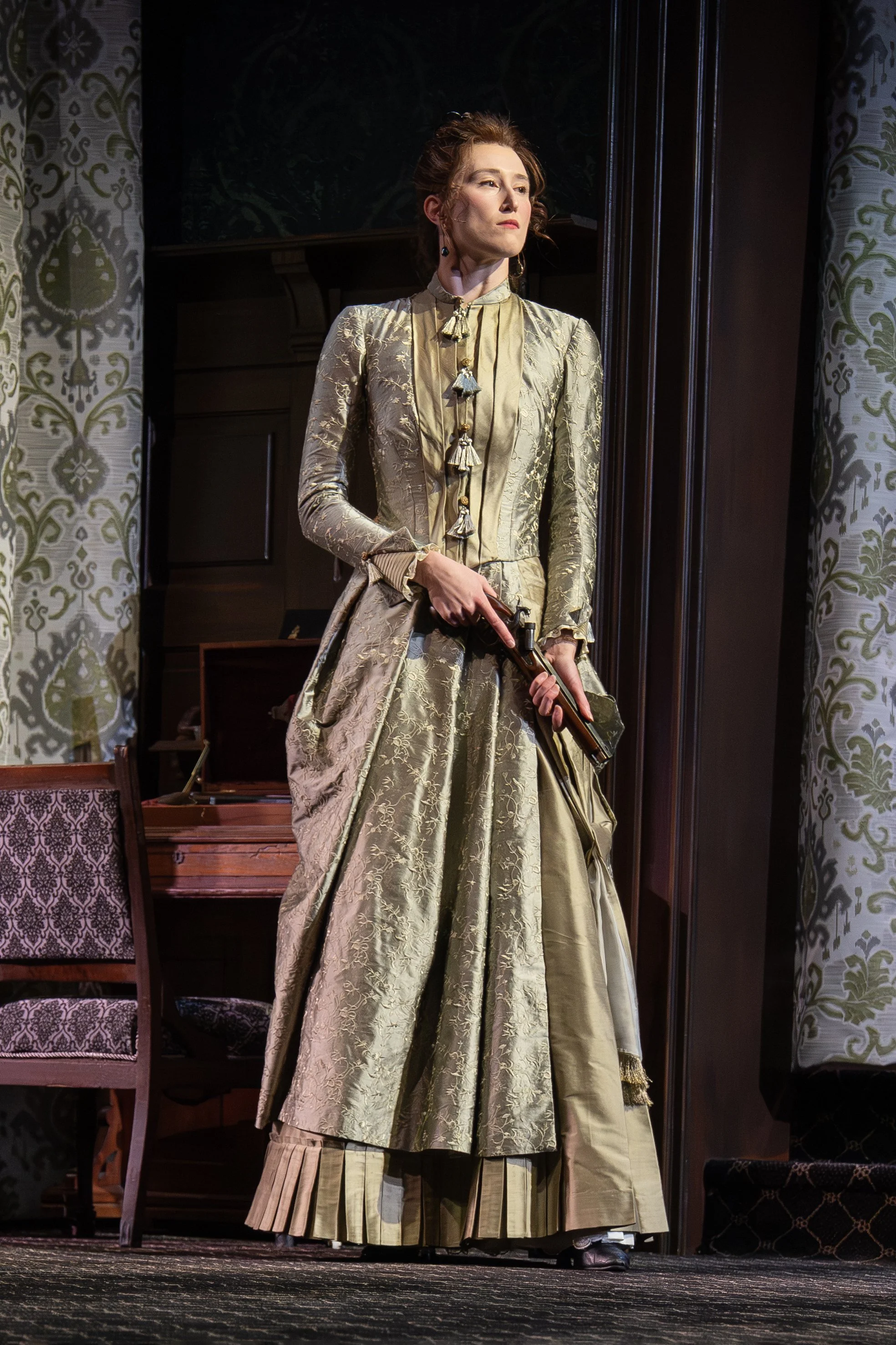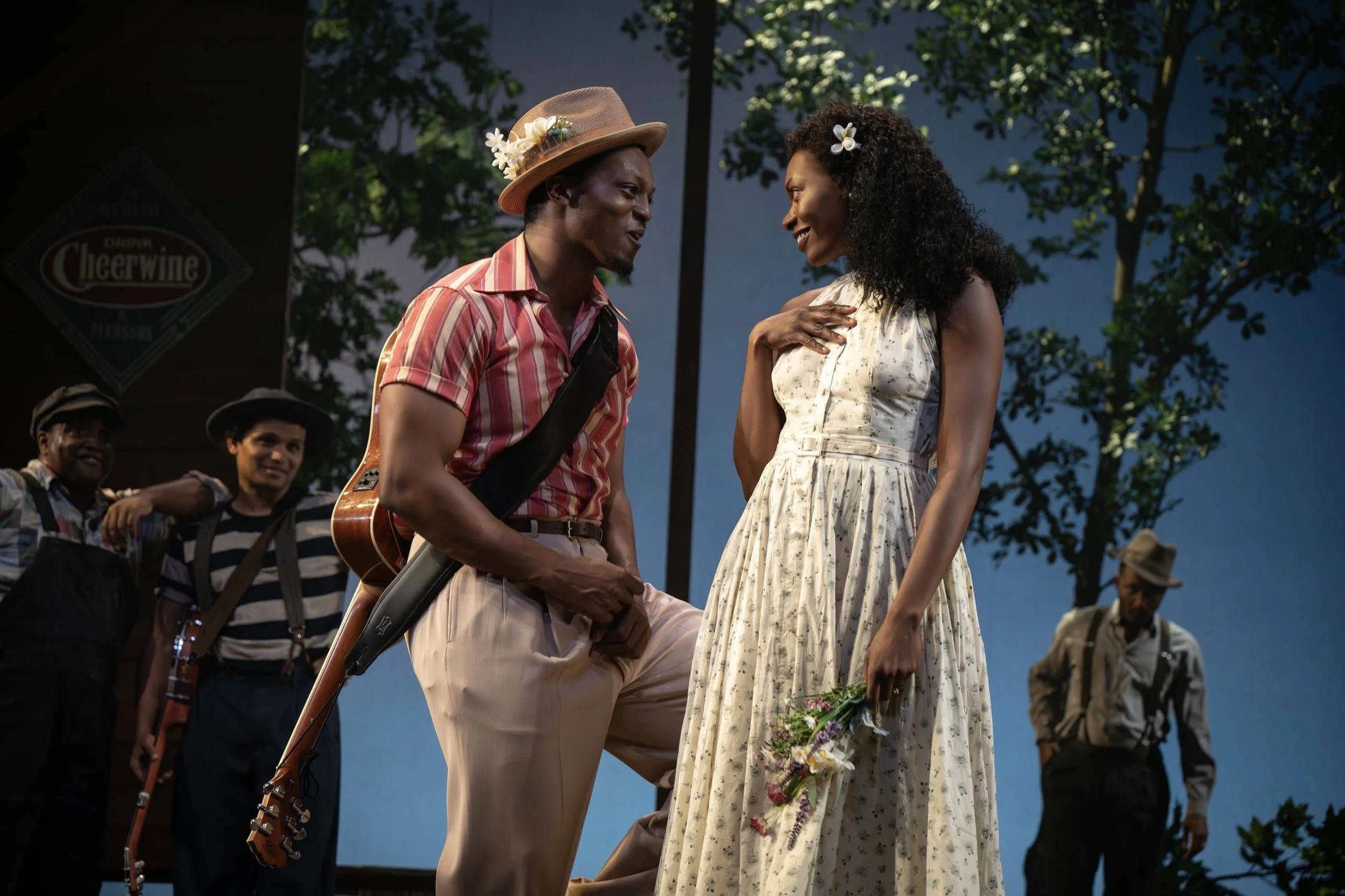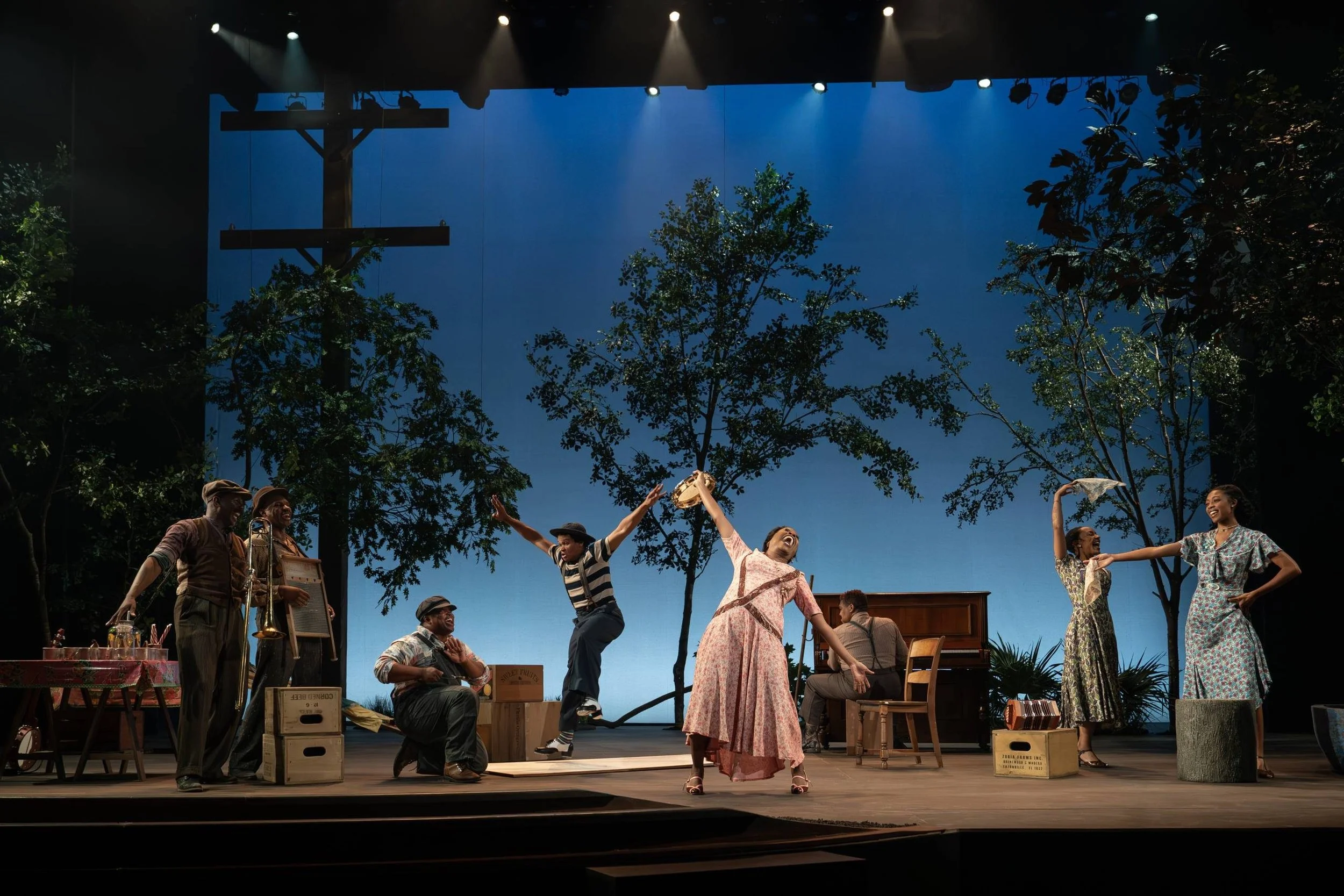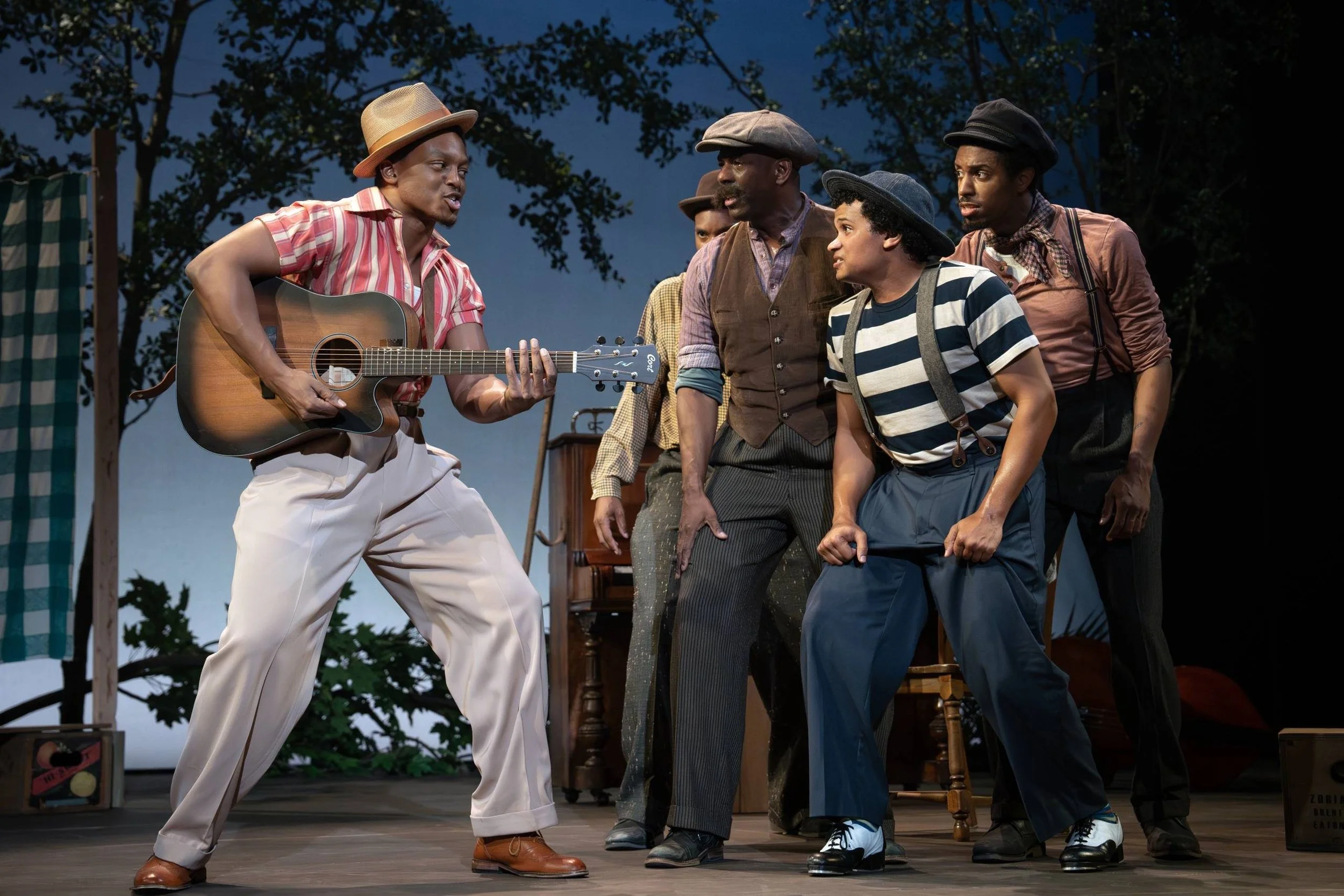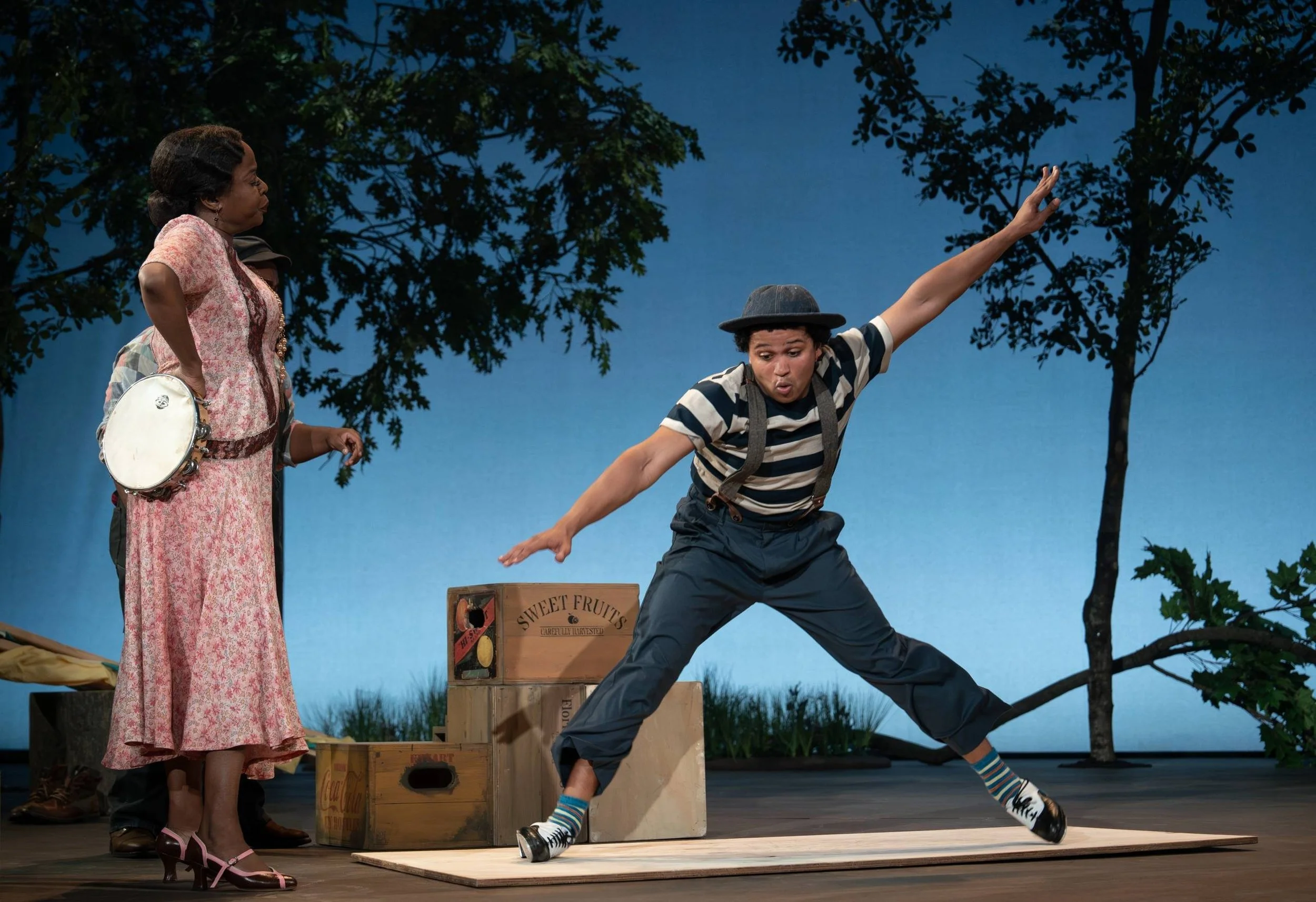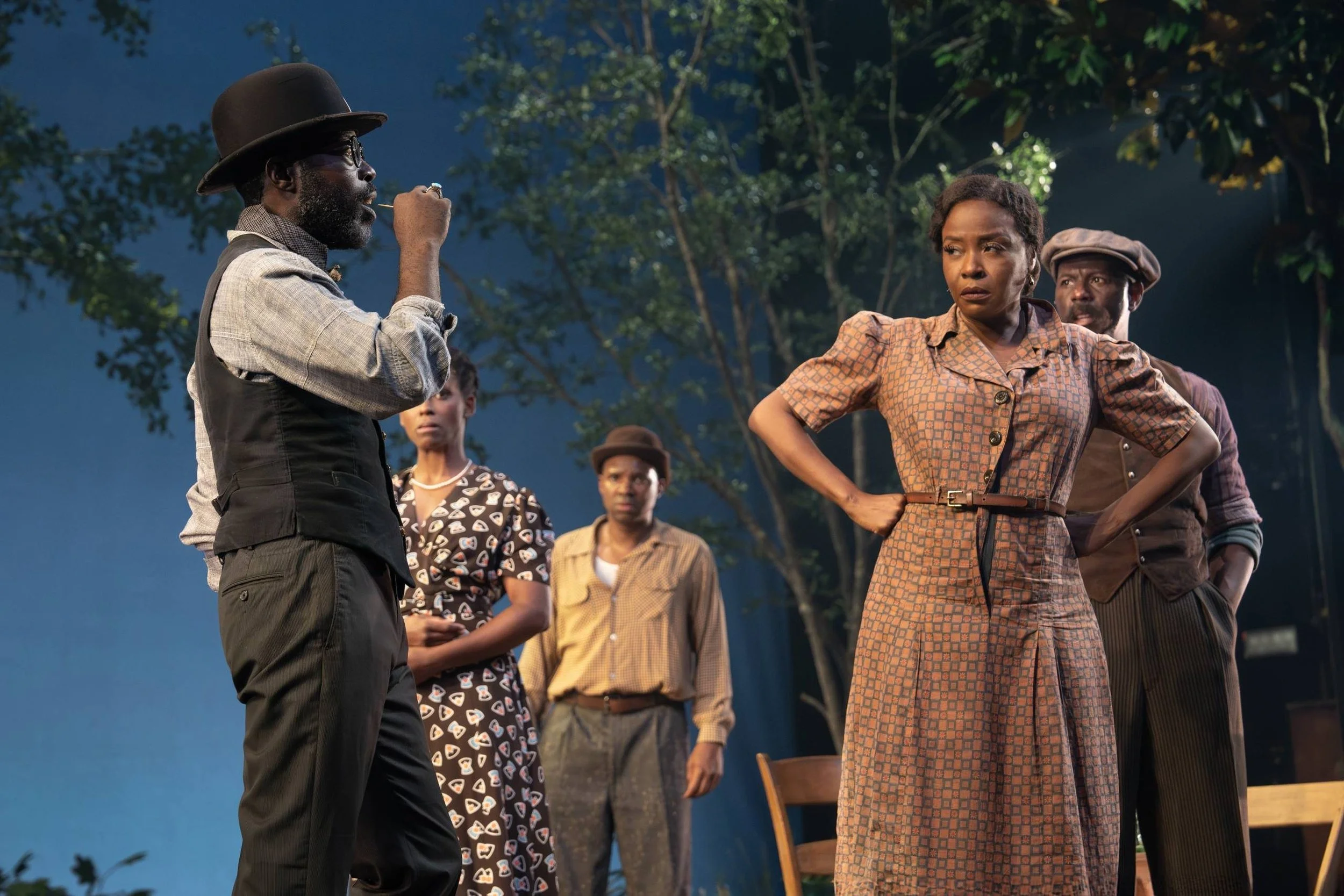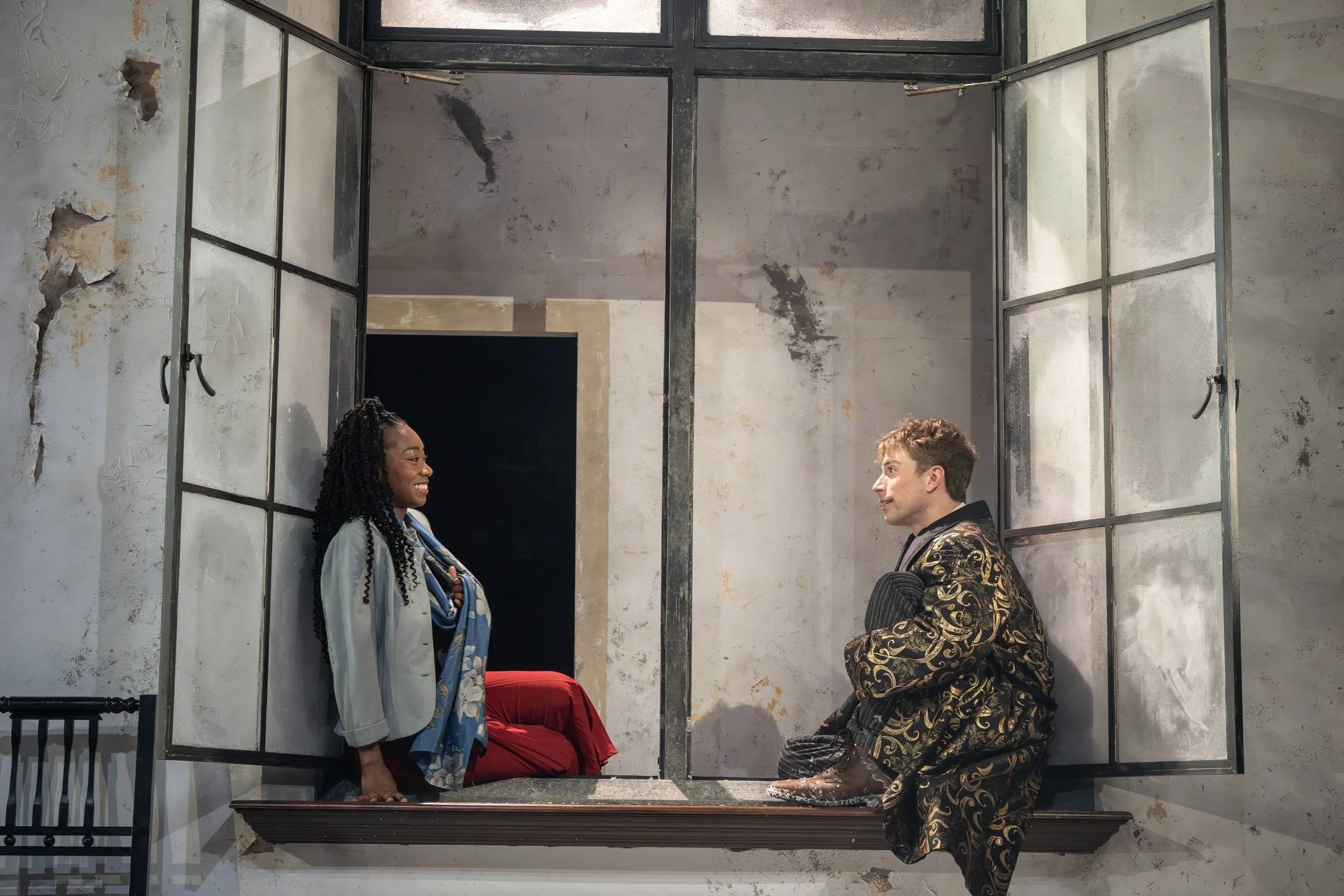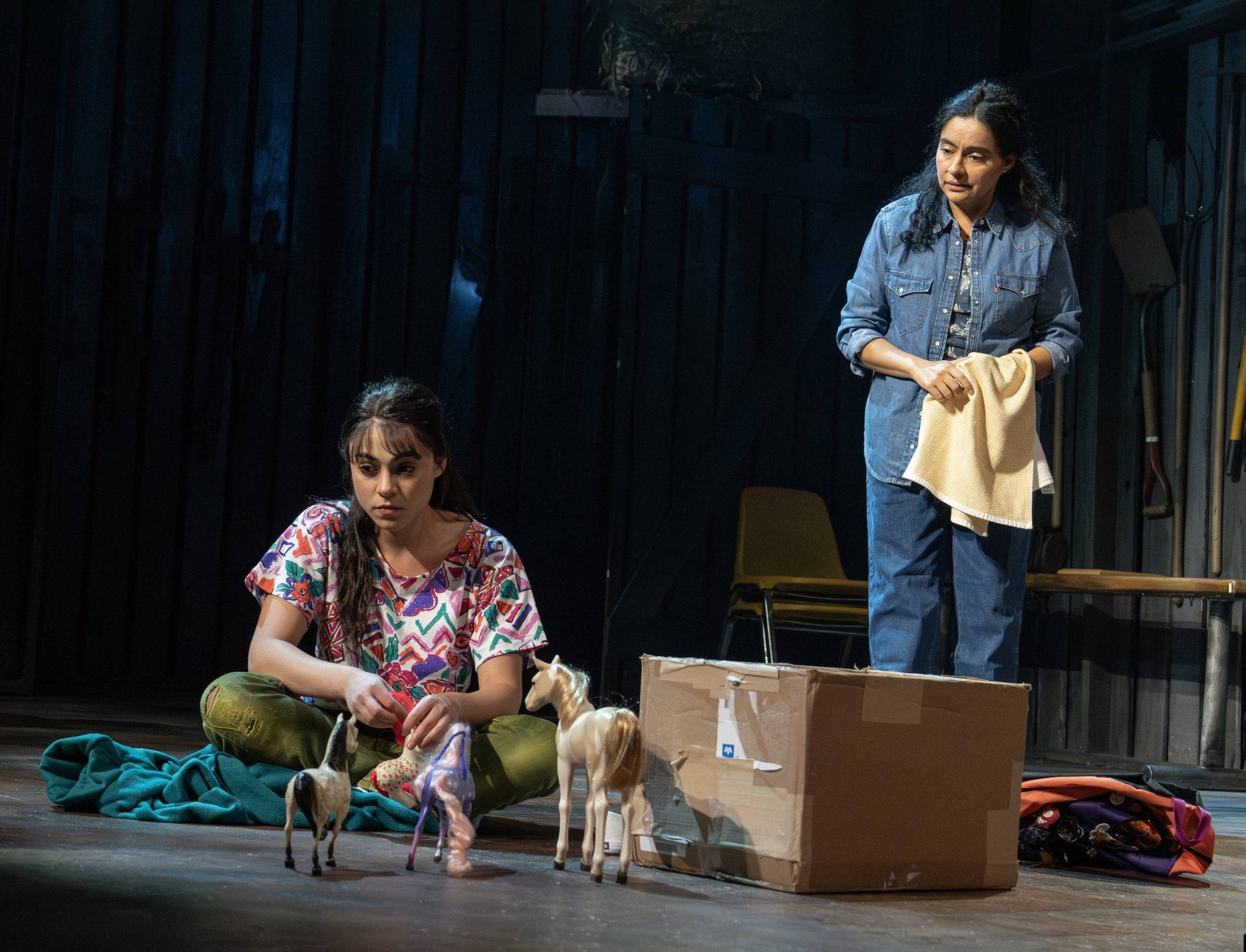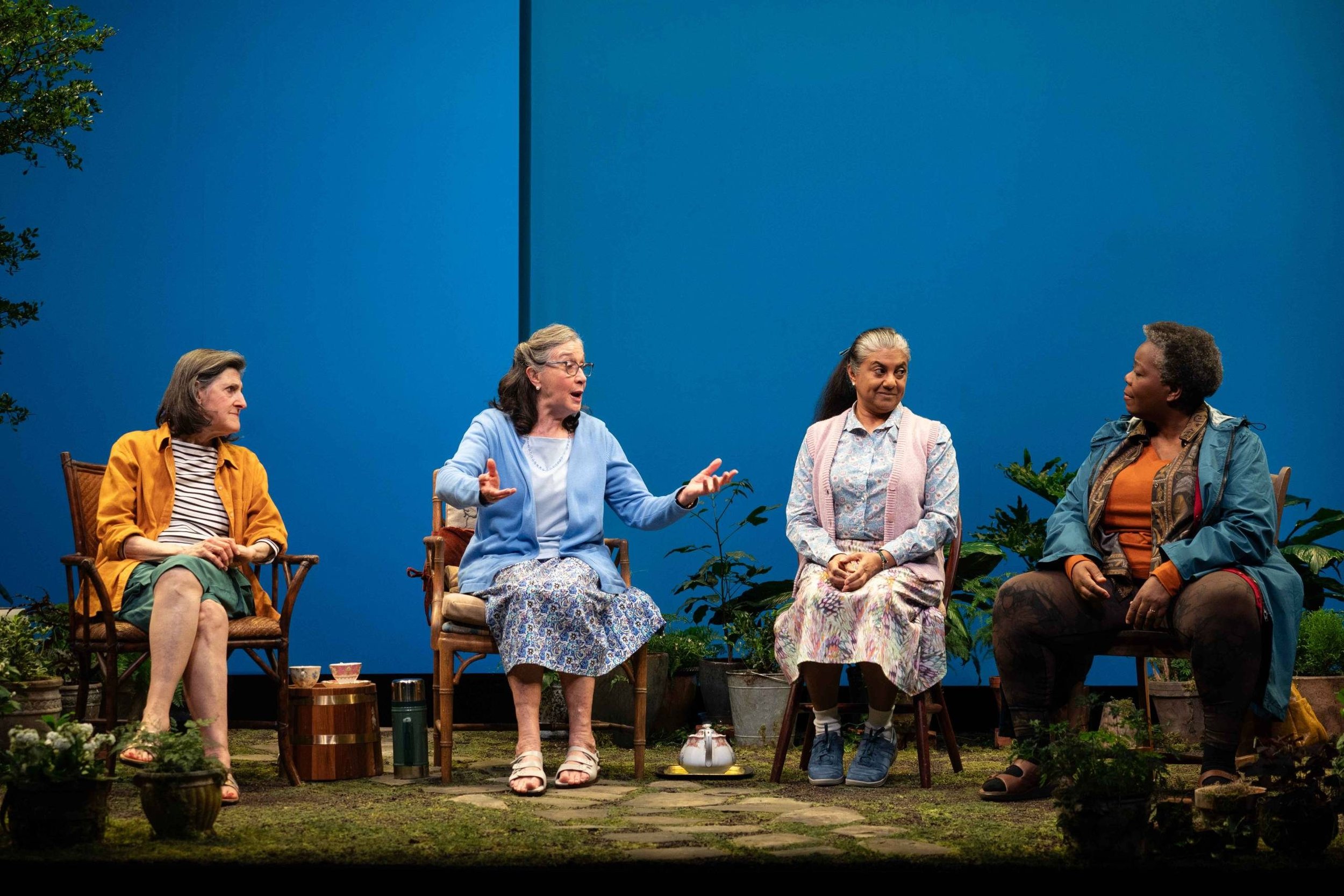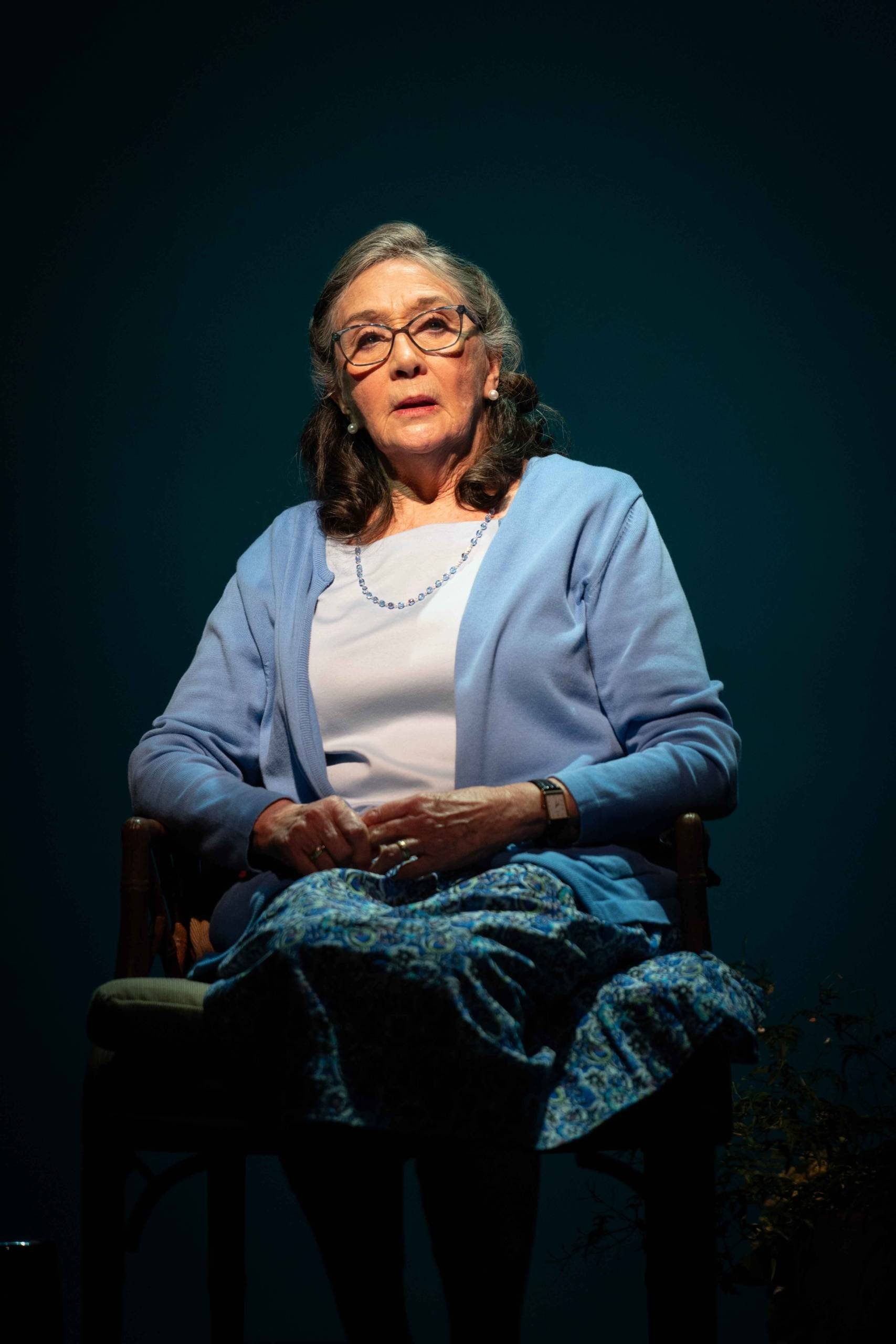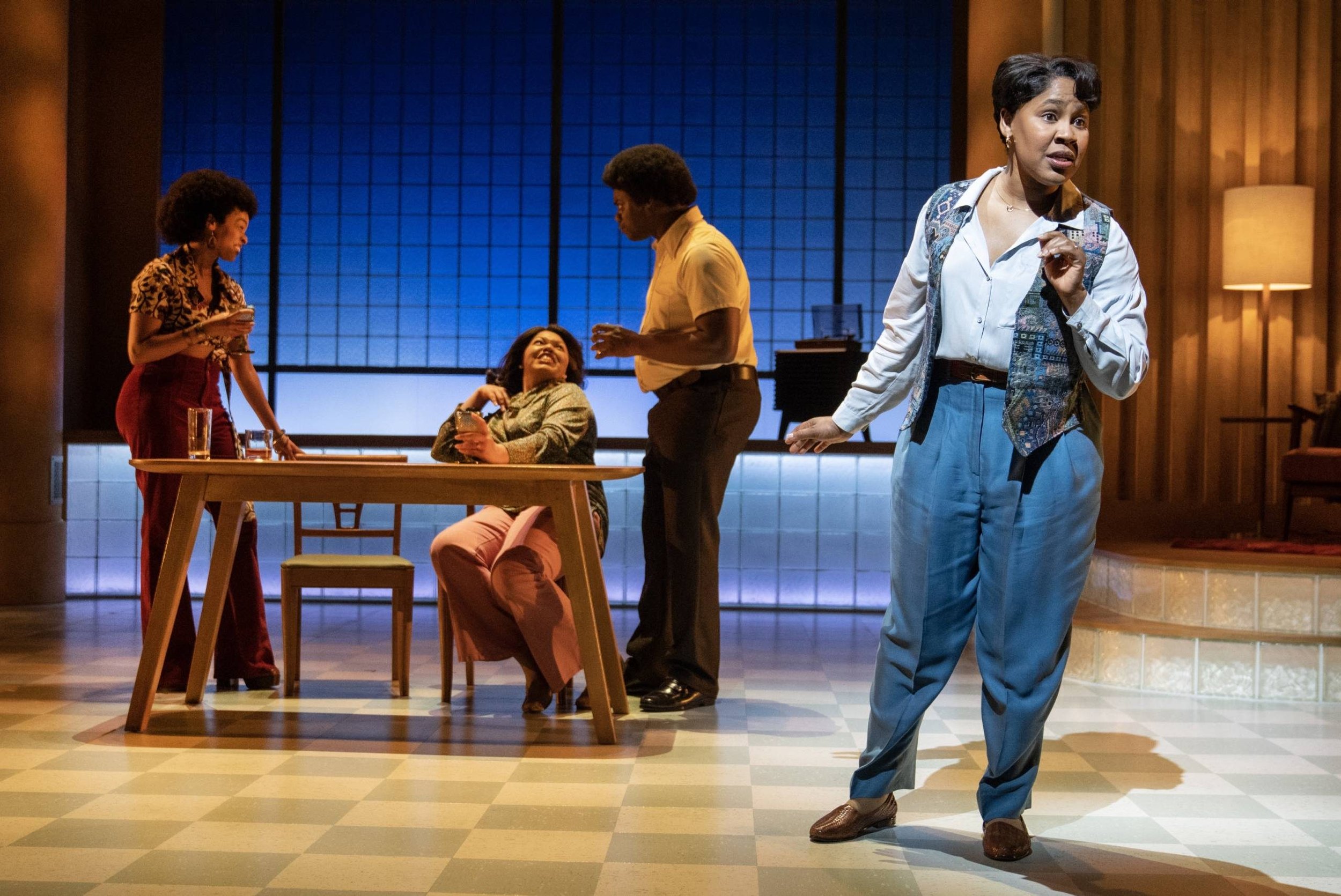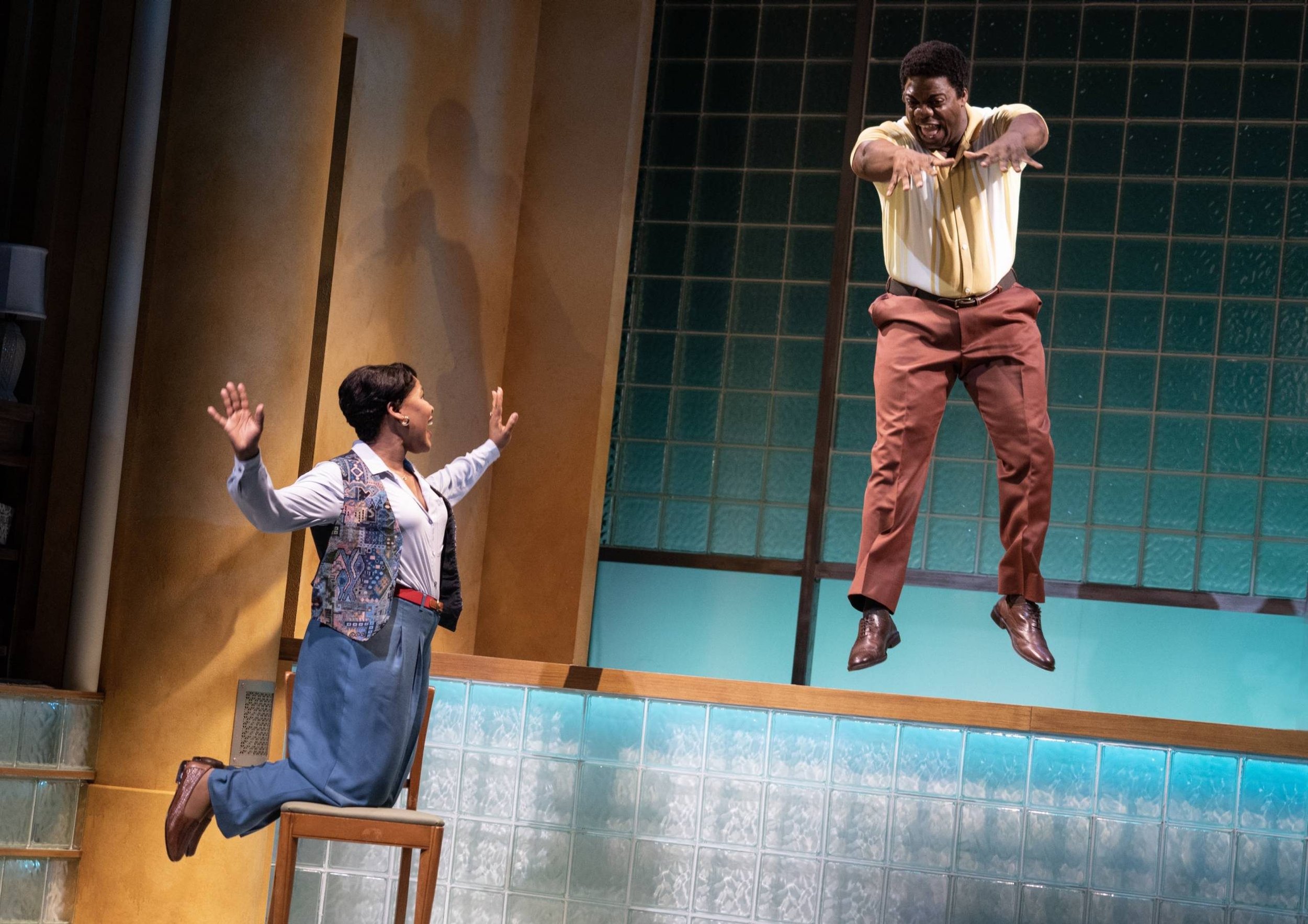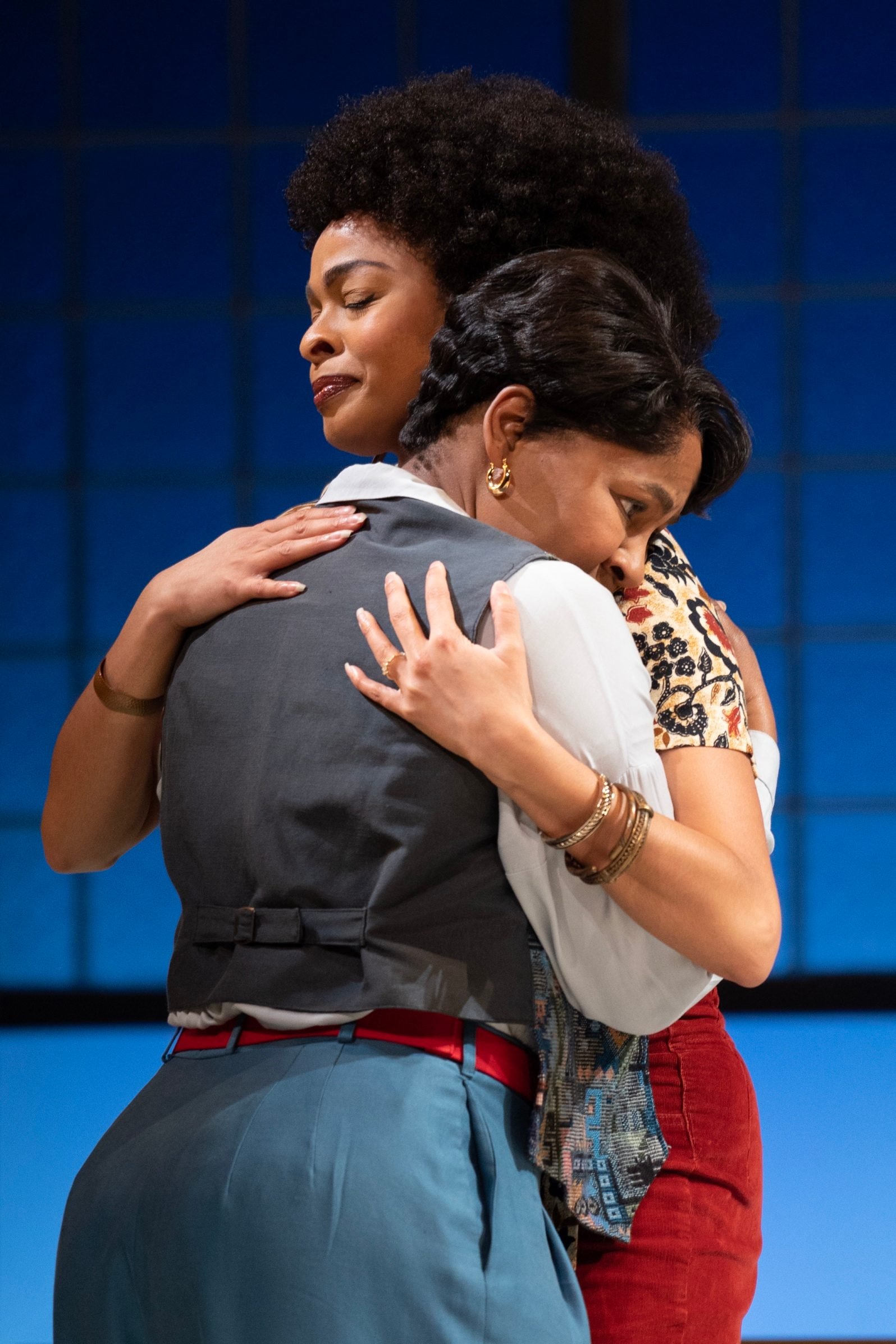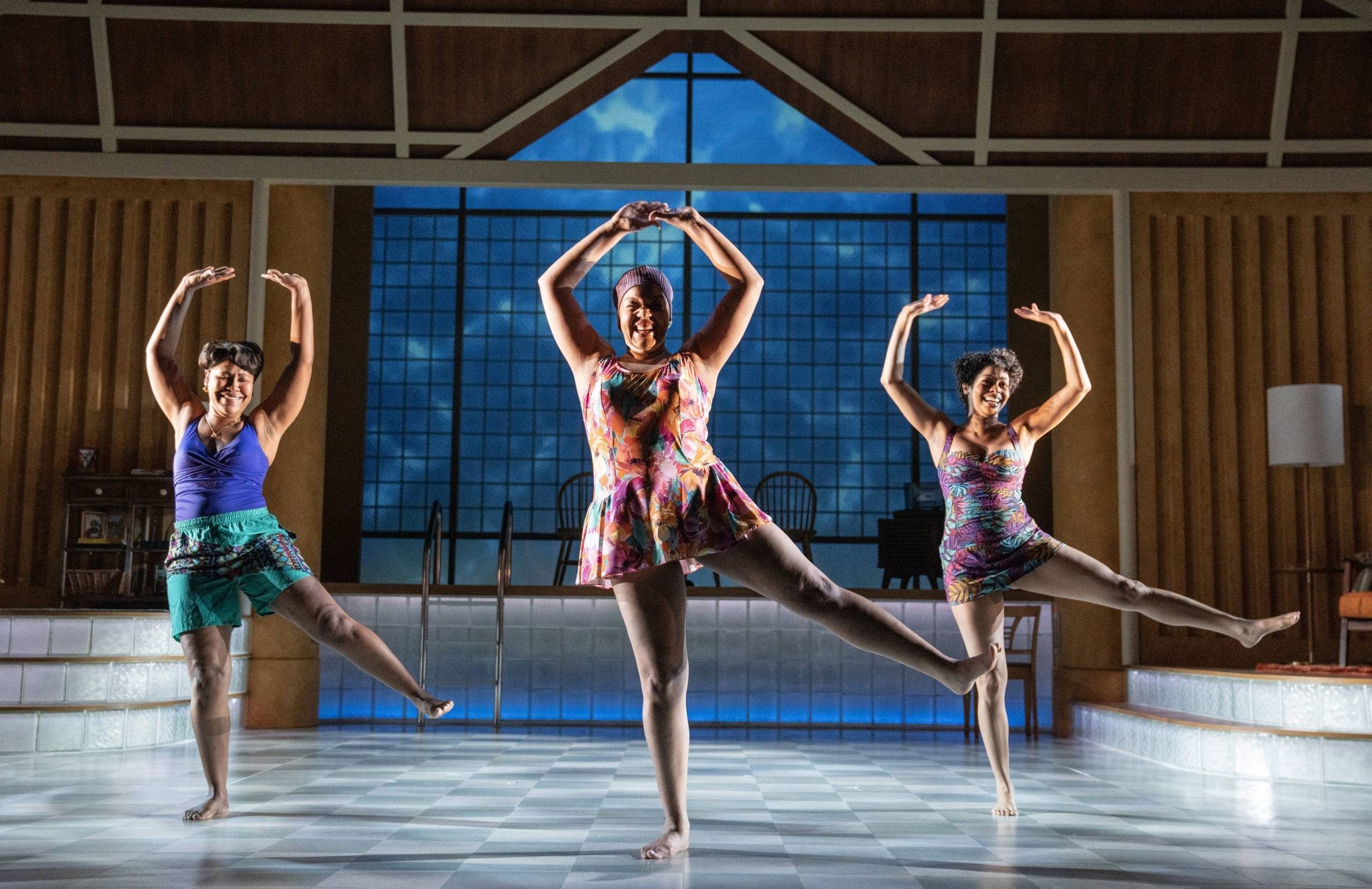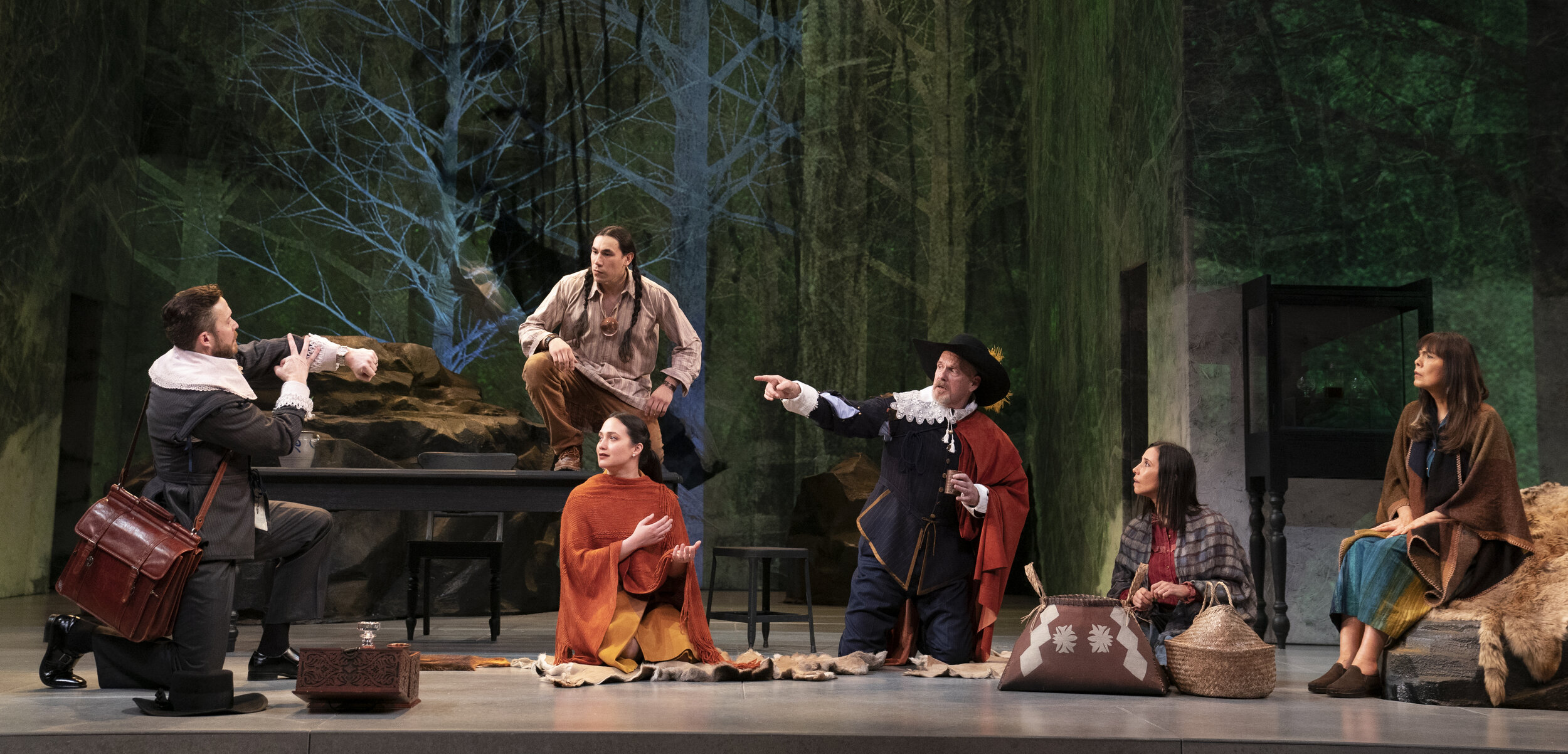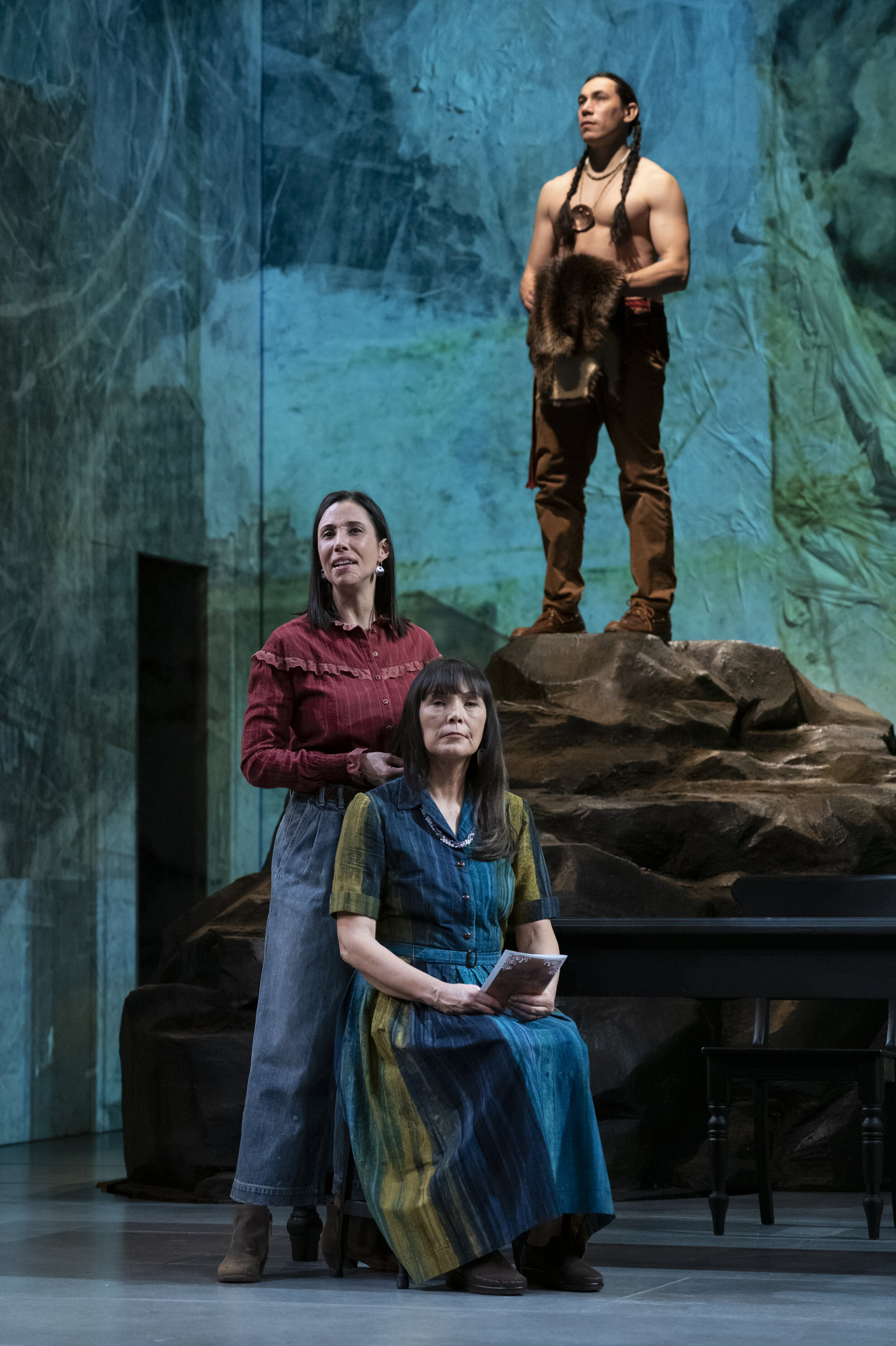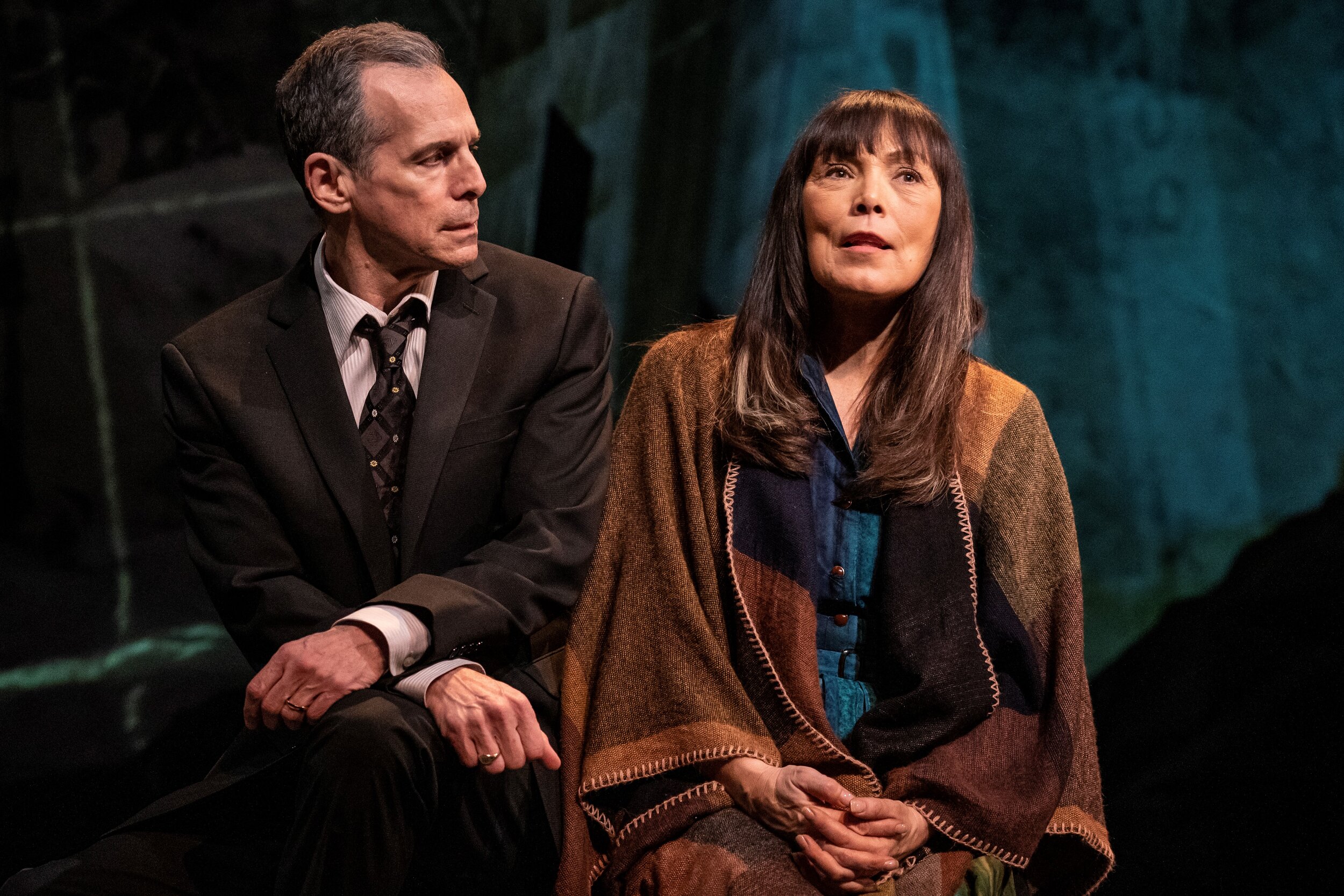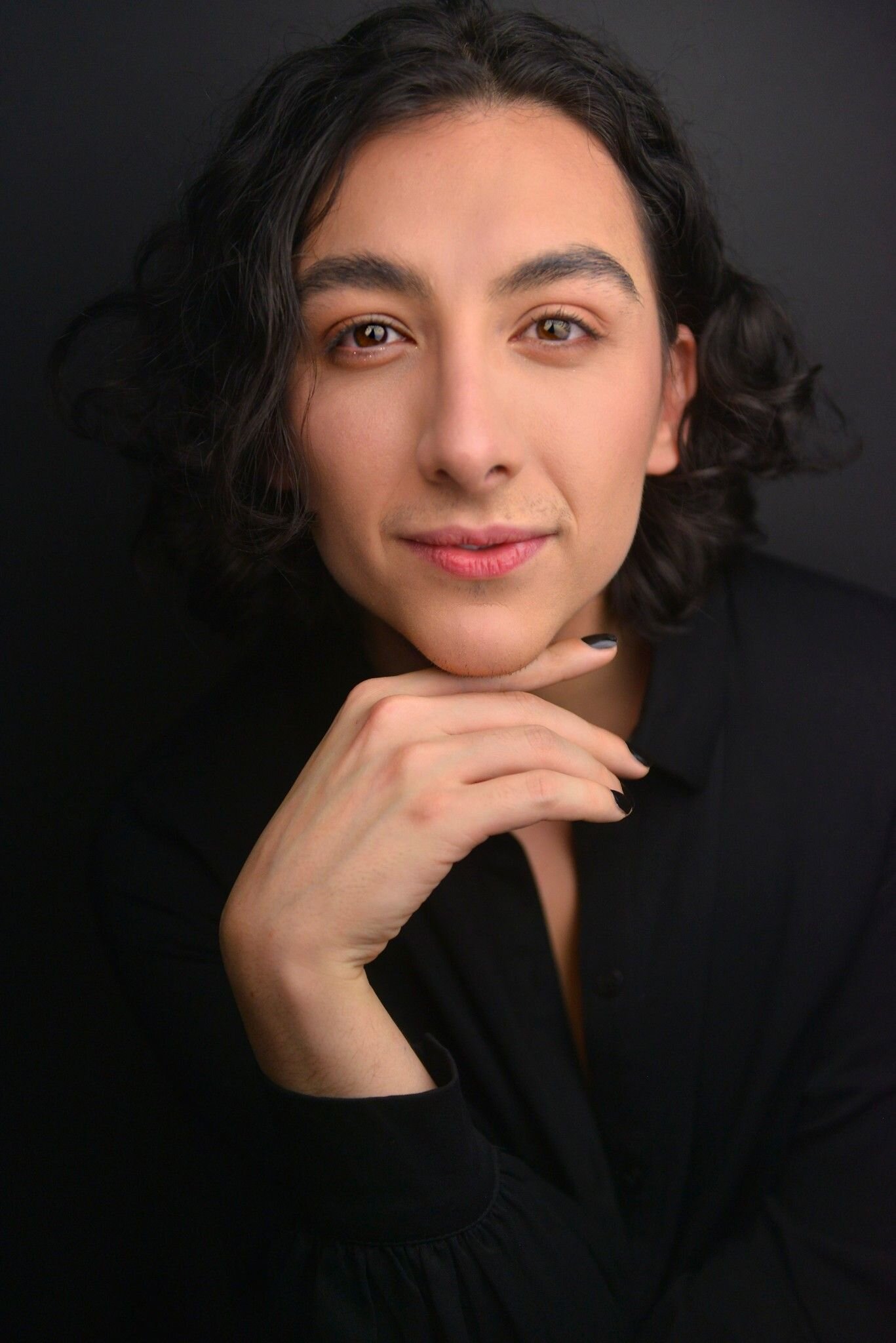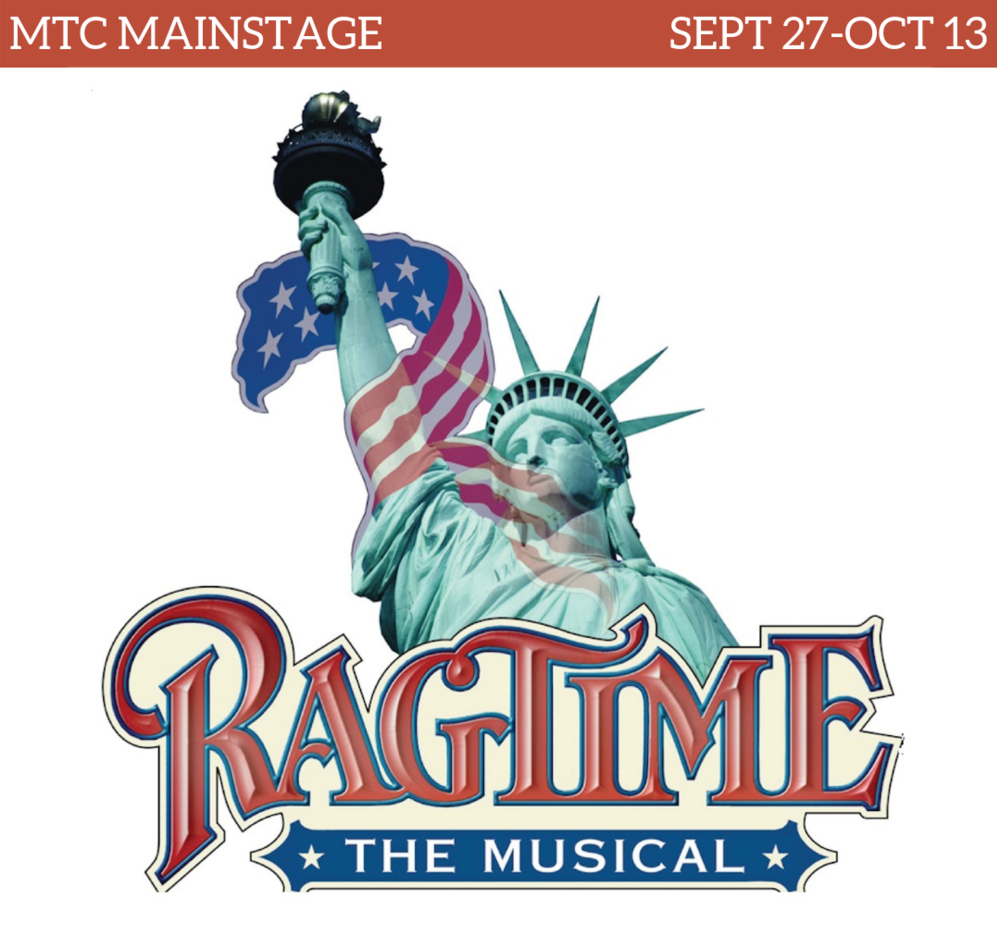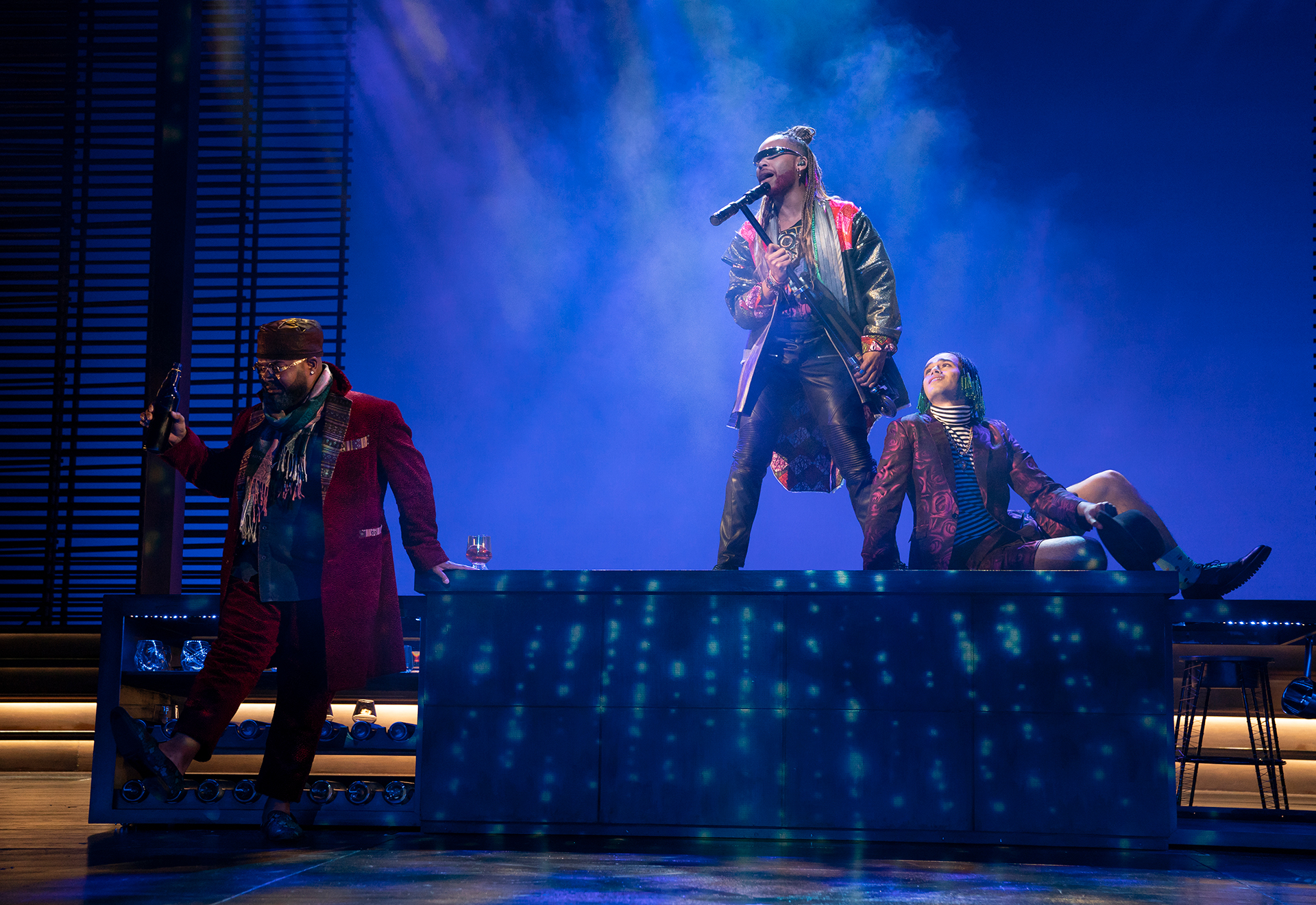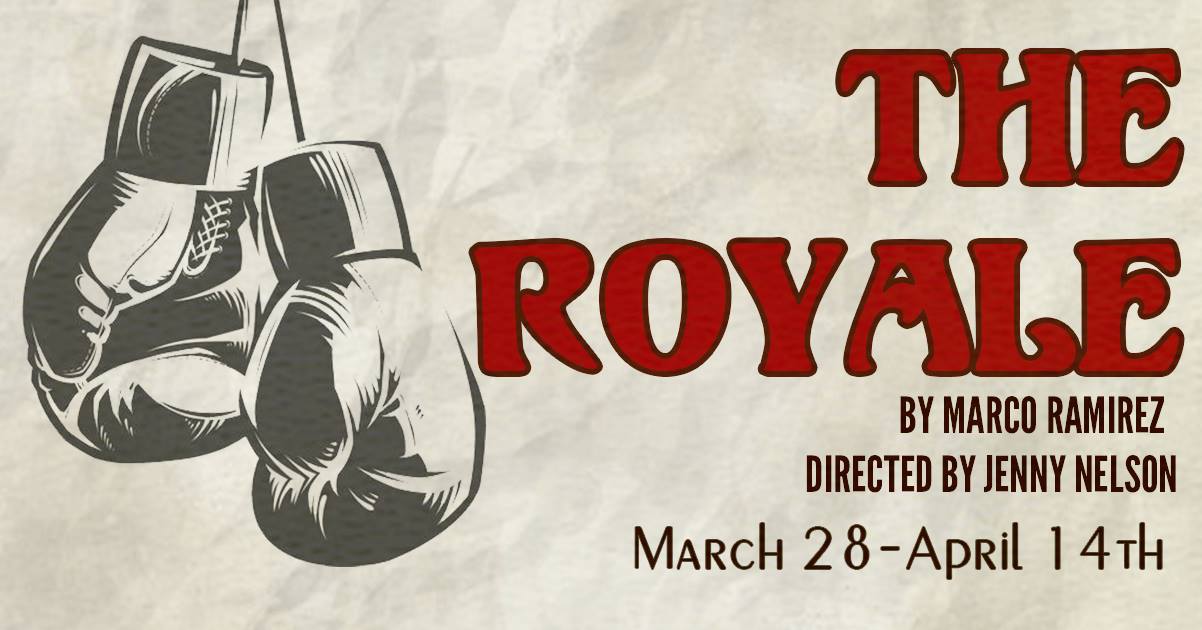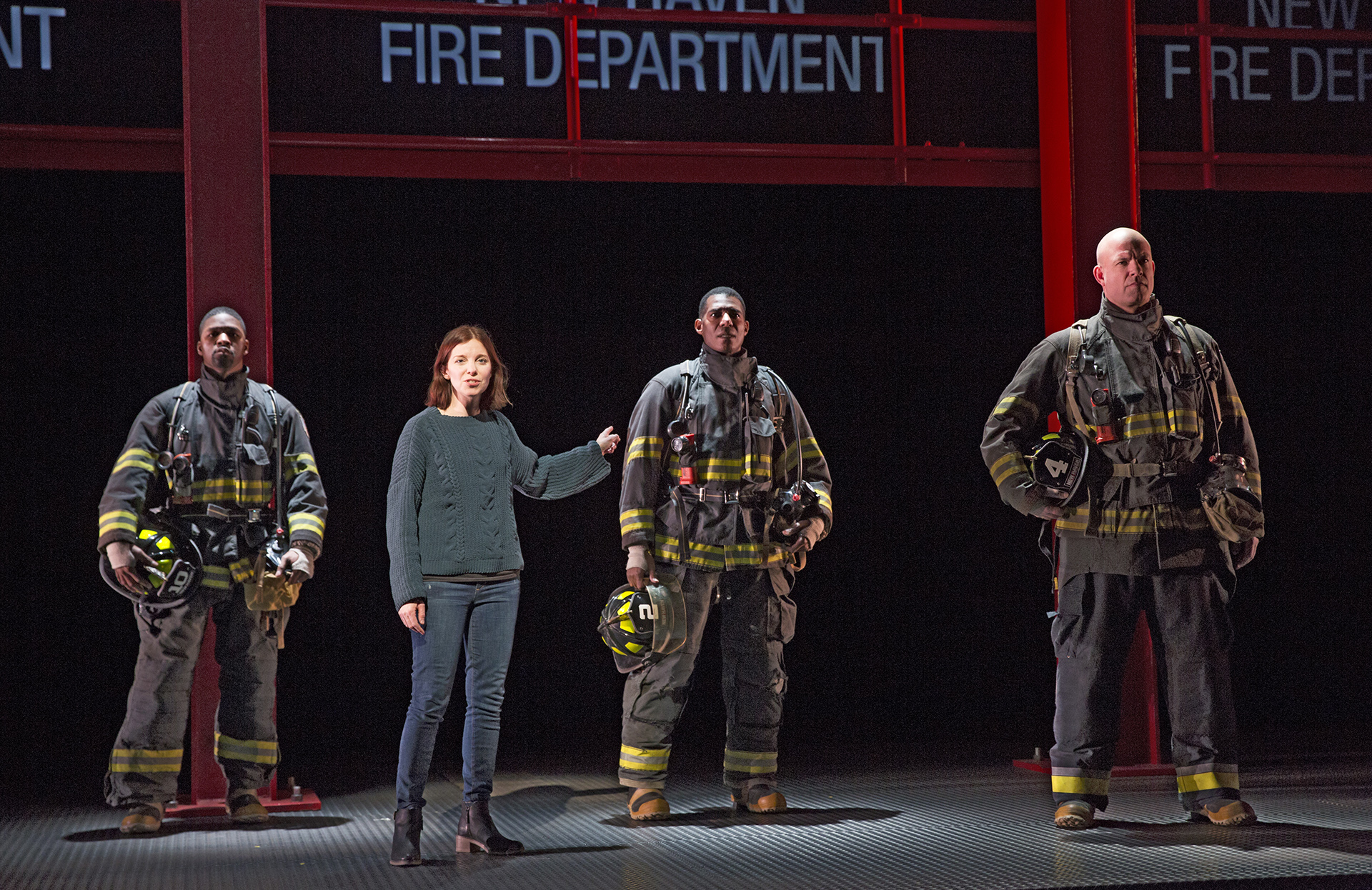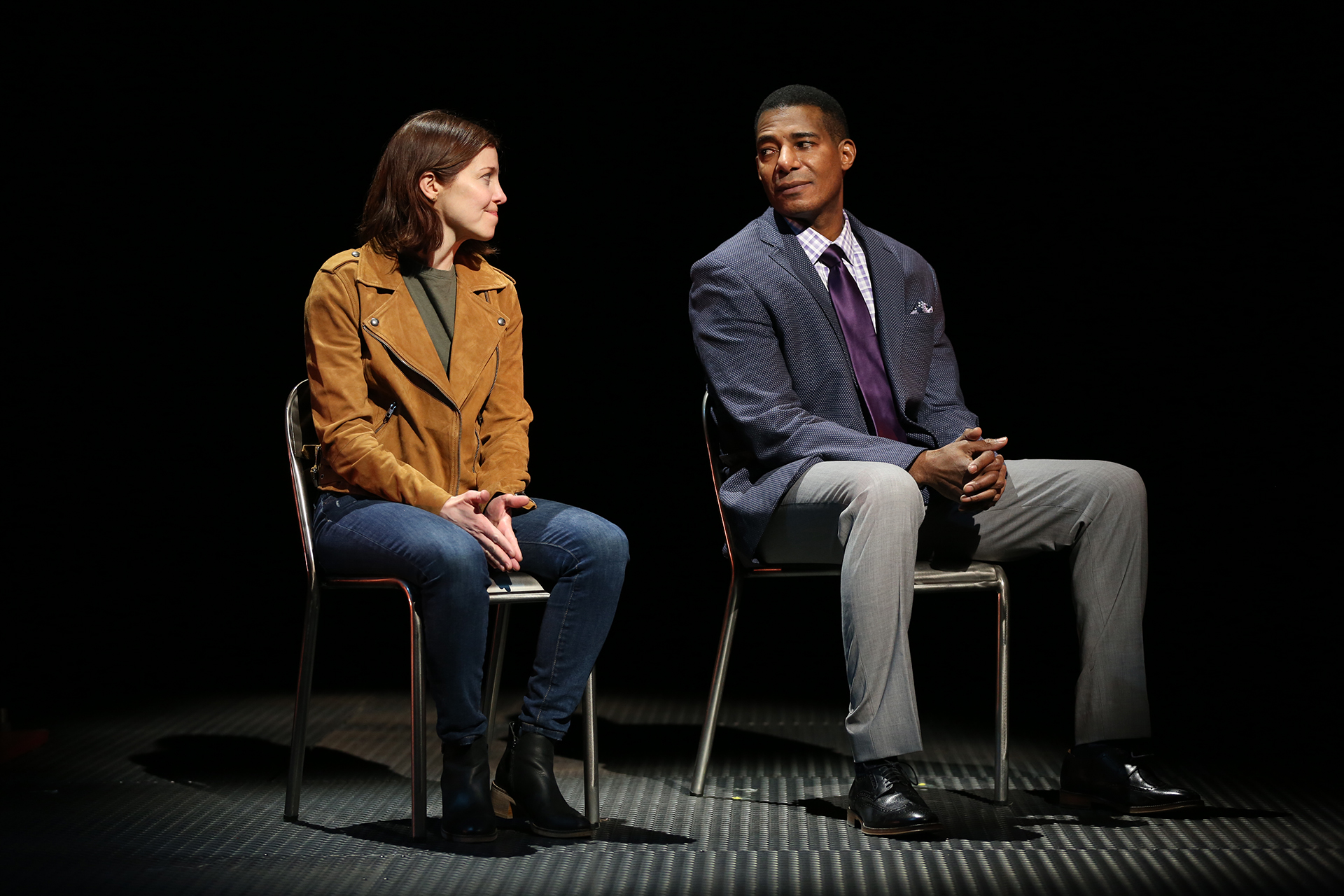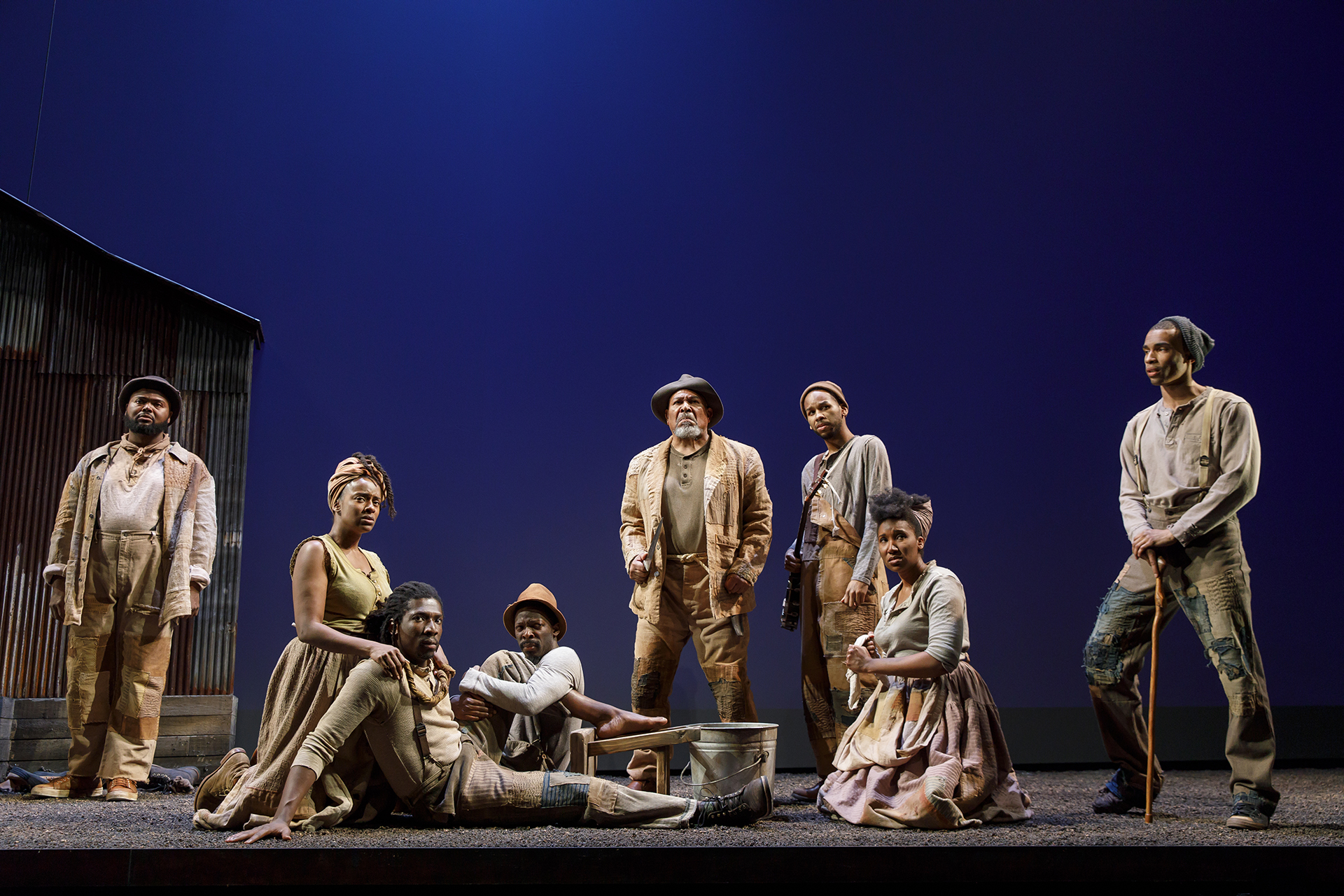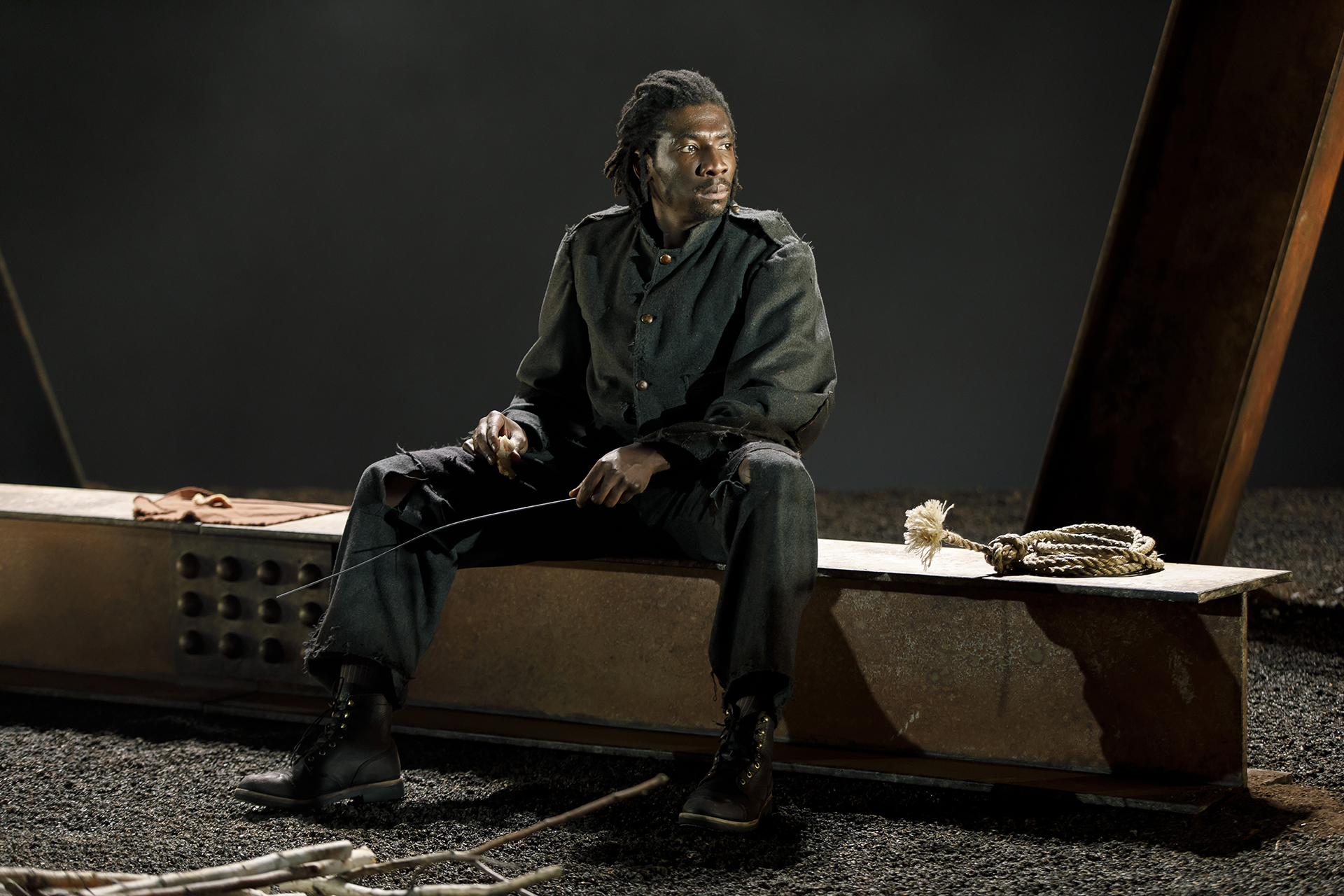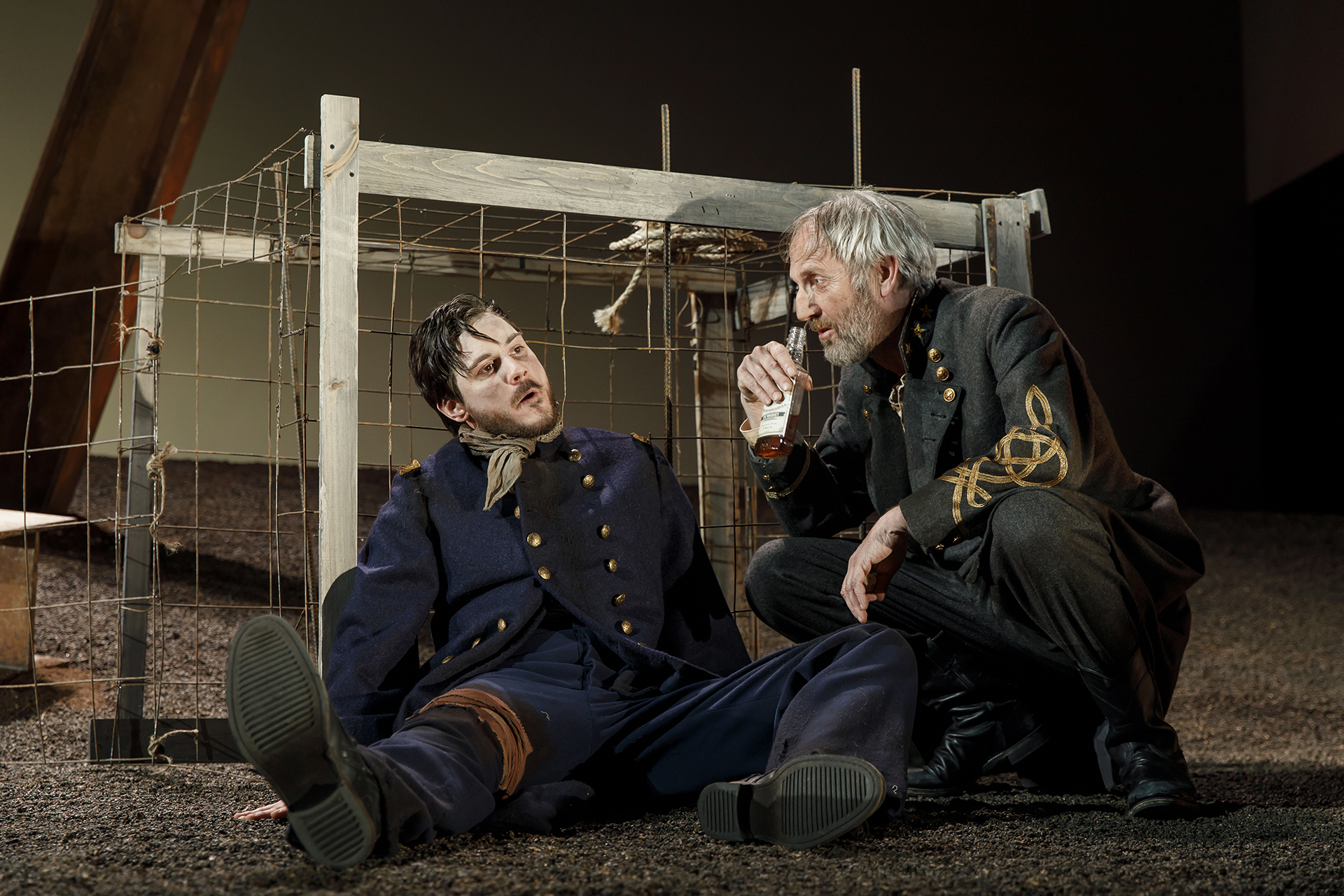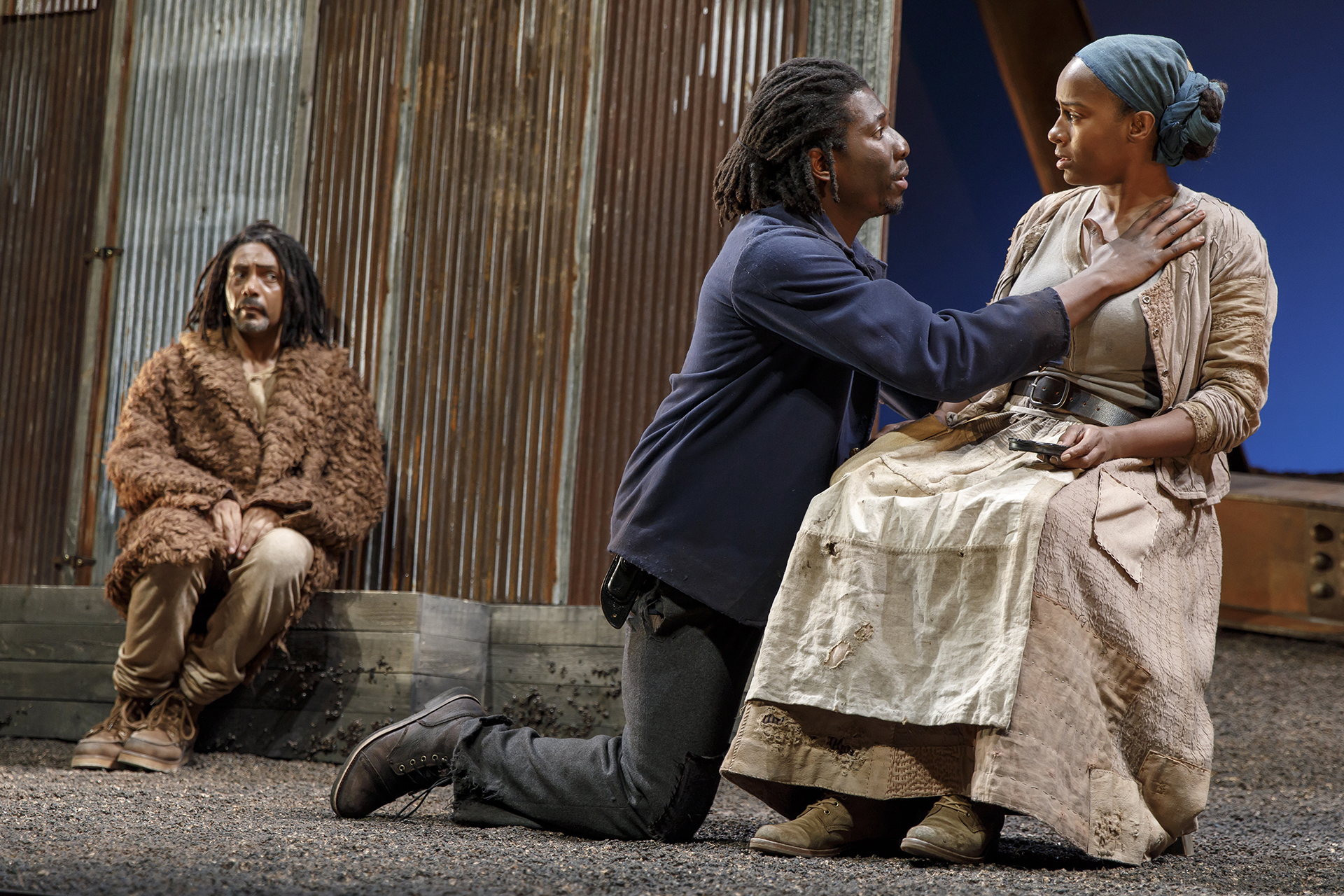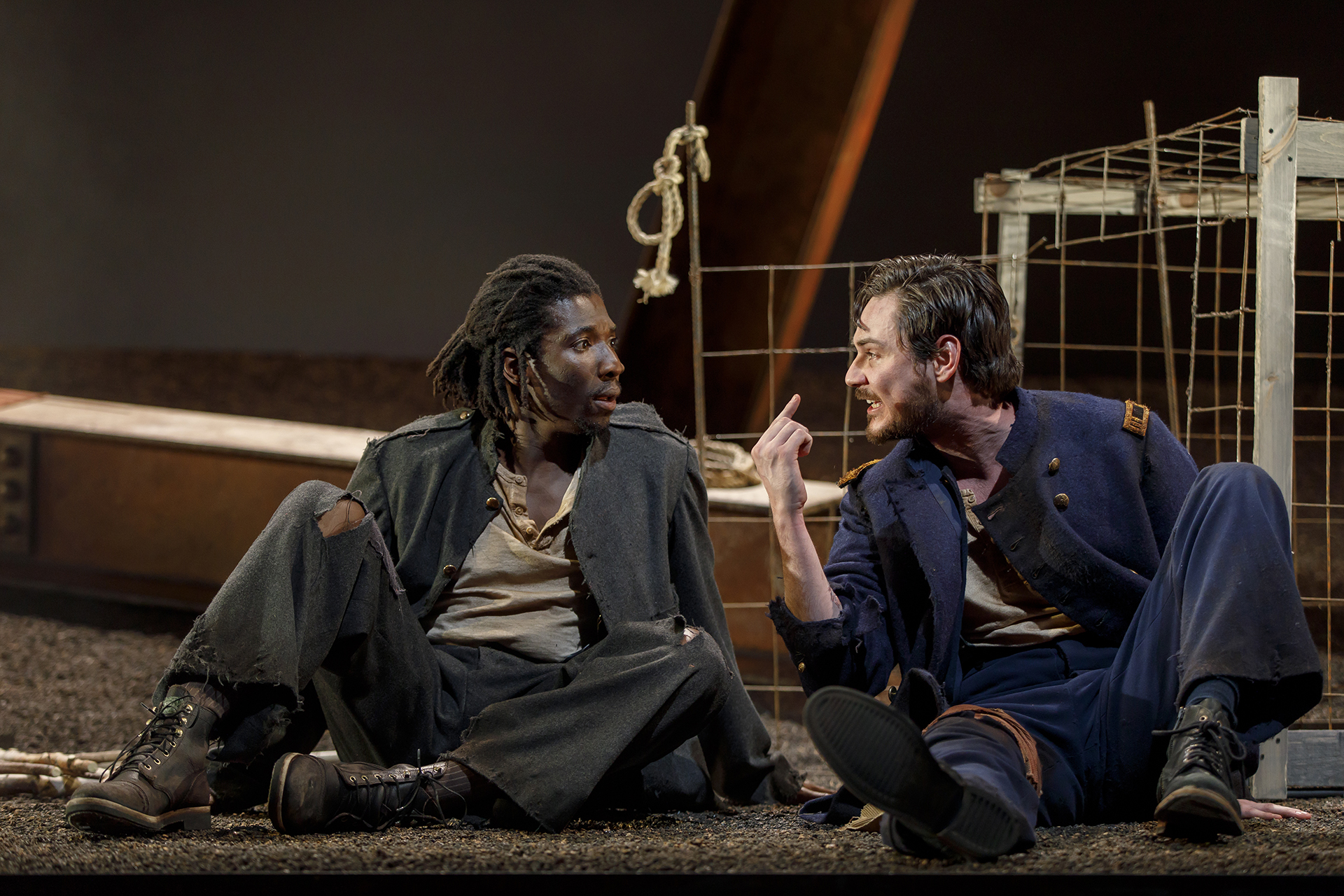Review of Ha Ha Ha Ha Ha Ha Ha, Yale Repertory Theatre
"Poetry makes nothing happen," W. H. Auden once wrote, a bit sententiously. Theater such as practiced by Estonian clown Julia Masli does make things happen, and watching that happen is a fascinating experience. Playing through February 7 in a touring production from DC's innovative Wooly Mammoth Theatre Company, Masli's HA HA HA HA HA HA HA, directed by Kim Noble and performed by Masli, is theater as happening. Or we might say: by virtue of being in the theater—Yale Repertory Theatre, corner of Chapel and York—you are in theater.
Janet Masli in HA HA HA HA HA HA HA, Yale Repertory Theatre; photo by Andy Hollingworth)
Masli, wearing a fairly outlandish costume, a kind of surreal drapery, wanders about with a light on her wrist, a microphone on the end of a golden mannikin leg covering one arm, and a recording device headdress, voicing a high-pitched inquiry: "problem?" On cue, any one she asks voices a problem—which might be anything from concerns about family, job, the state of the world, or how to do gardening or juggle school and love. Hypnotic in her movements with a candid gaze and a voice that can range from sweet naivete to commanding bluster, Masli fields each statement as though personally responsible for the speaker's concerns, a guardian angel sent to make things better. To that end, she has at her disposal a wealth of props, so when a man—a father of two—claims he's been having trouble sleeping, Masli can offer him a divan to recline on for the duration of the show, complete with sleep-mask and noise-canceling headphones. Other prop-dependent interactions involve smashing a chair and building a new one—to fix "this broken world"—a cleansing shower, building a sculpture from mannikin legs, and pizza from heaven.
The participants in the show are selected by Masli from the audience, and while the process of selection may be obscure, the effects are not. As the night goes on and more and more participants are involved, the audience becomes aware of a gradual process taking place: we're not watching a show, we're in a show. This became charmingly apparent, in the opening night performance, when a phone-call to an audience member's mother—in California—meant the recipient of the call could hear the applause, laughter and comments by the audience as a feature of the call. We were all on the line with Brenda.
And that's the genius of Masli's approach to theater: the willingness to put it all on the line. Of course this is rehearsed, scripted as well as improvised, and with considerable tech support (lighting and sound and musical accompaniment are all revelatory and fittingly relational—Alessio Festuccia, Sound Designer and Composer; Sebastián Hernández, Live Sound Designer; Jennifer Fok, Co-Lighting Designer; Lily Woodford, Original Lighting Designer; Sarah Chapin, Associate Producer, Production Manager, Stage Manager, Live Lighting Designer). Yet it feels at times like watching someone else's dream take place (the music helps that effect wonderfully), where something you might not know about yourself could surface at any moment. Which means you might find yourself wondering what "problem" you might admit, or what weight you would like to "let go," or whether you're willing to proffer a sock to Masli's collection.
The absurdist elements in the show—which will tickle different fancies differently—are offset by an earnestness that, to me, comes closest to what it's like being in a classroom and having to indulge the teacher wherever she goes with whatever she's saying. (Though this may be an effect of the fact that—as mentioned twice by Masli—James Bundy, "the Dean of Theater," was present in the audience on opening night and a fair share of the audience are or were involved with the Rep or the School of Drama or both.) As in a classroom, you may have a chance to speak, but you're mostly there to learn.
And what do we learn? That we're all in this together. A platitude, granted, and learning what that really feels like—without being at too much personal risk—is the valuable effect of HA HA HA HA HA HA HA. "You had to be there," as the saying goes, but in this case, "being there" is the entire point, and experiencing that may cause you to want to return to the only entertainment that can make that happen: live theater like Masli's, where your presence matters because only you can take your place.
A Wooly Mammoth Theatre Company Touring Production
HA HA HA HA HA HA HA
Created and performed by Julia Masli
Directed by Kim Noble
Sound Designer and Composer: Alessio Festuccia; Live Sound Designer: Sebastián Hernández; Co-Lighting Designer: Jennifer Fok; Original Lighting Designer: Lily Woodford; Associate Producer, Production Manager, Stage Manager, Live Lighting Designer: Sarah Chapin; Costume Designers: David Curtis-Ring, Annika Thiems, Alice Wedge; Technical Director: Mara Bredovskis; Consulting Producers: Maria Manuela Goyanes, David C. Frederick, Sophia Lynn; Assistant Stage Managers: Whitney Renell Roy, Claire Young
Yale Repertory Theatre
January 20-February 7, 2026
